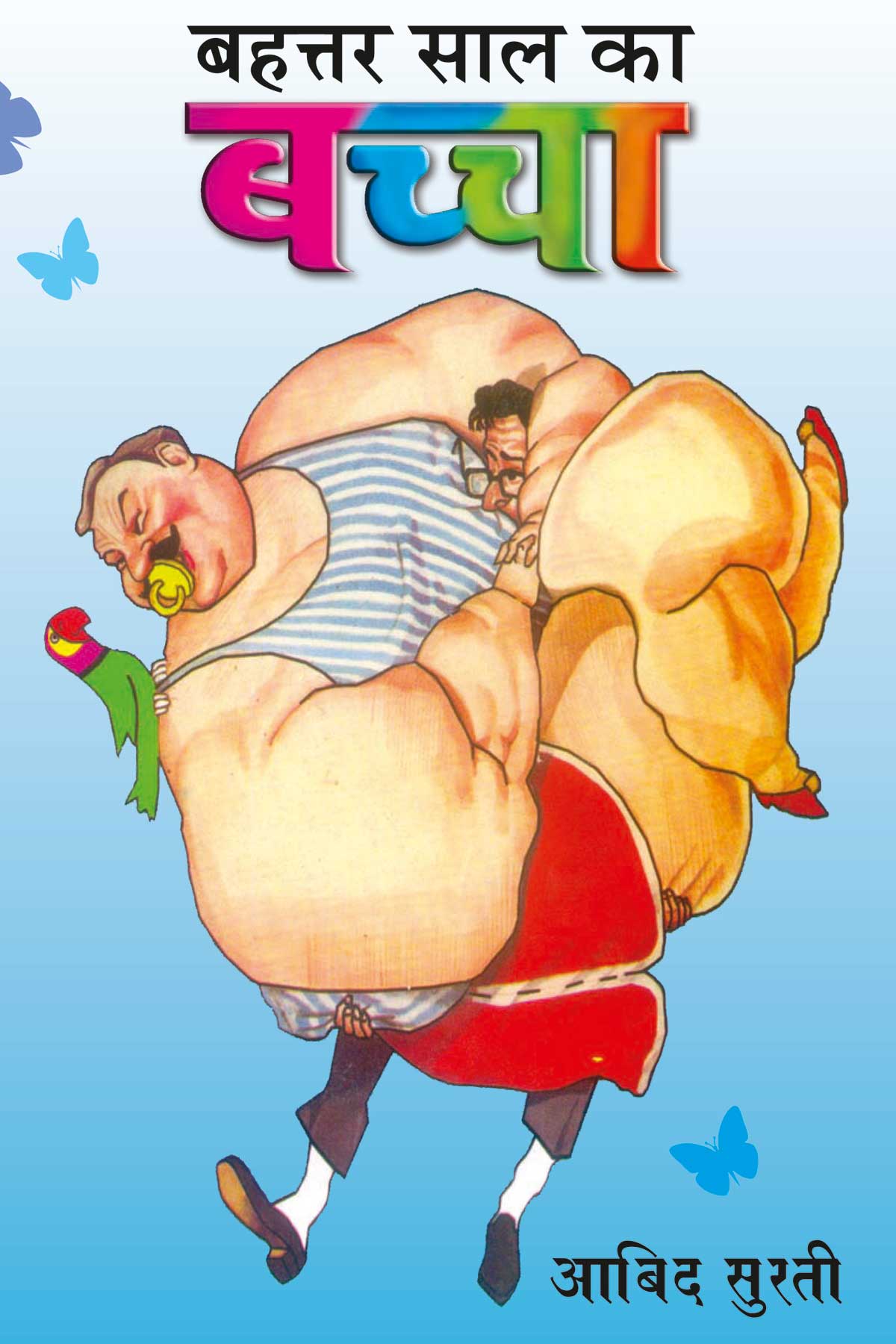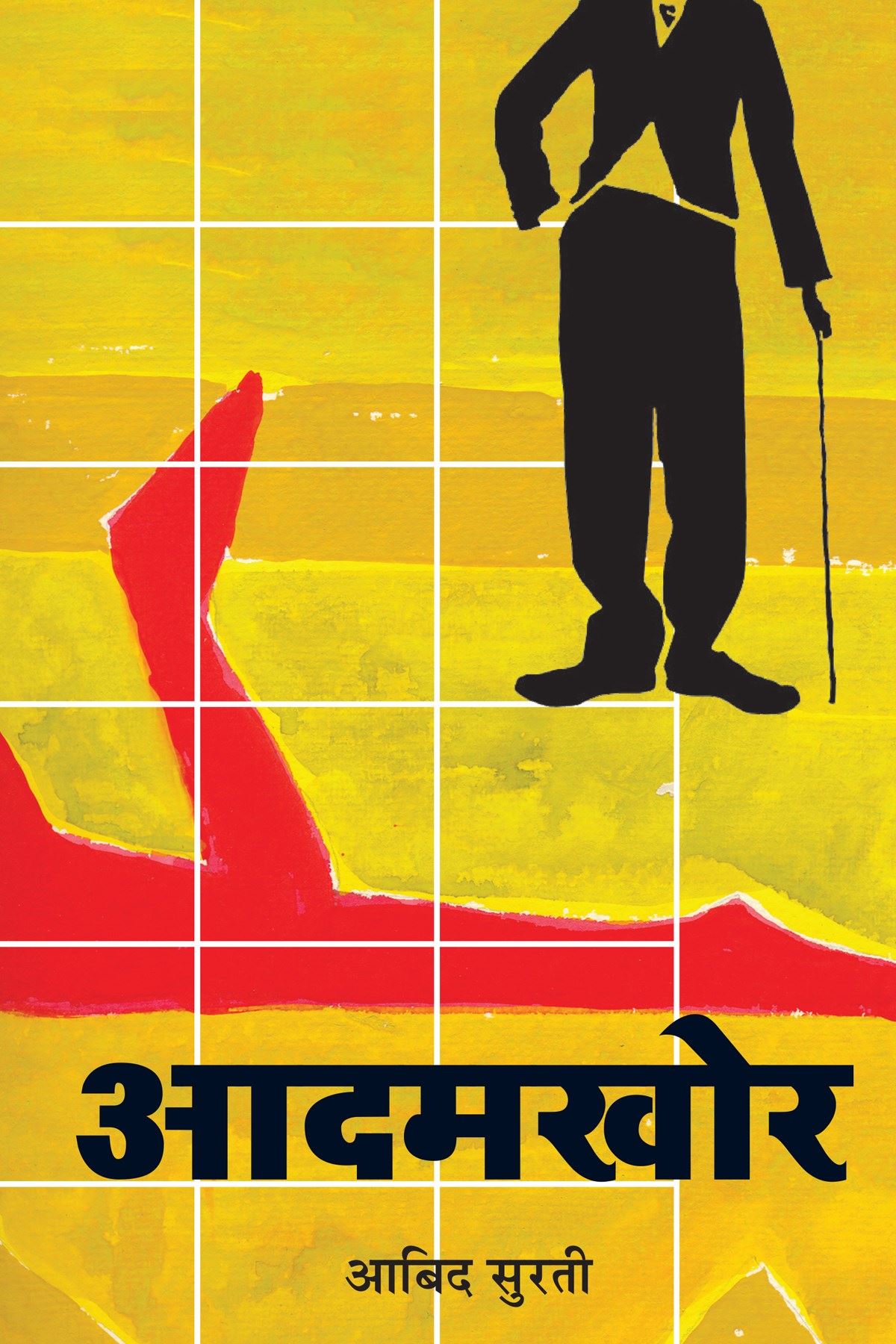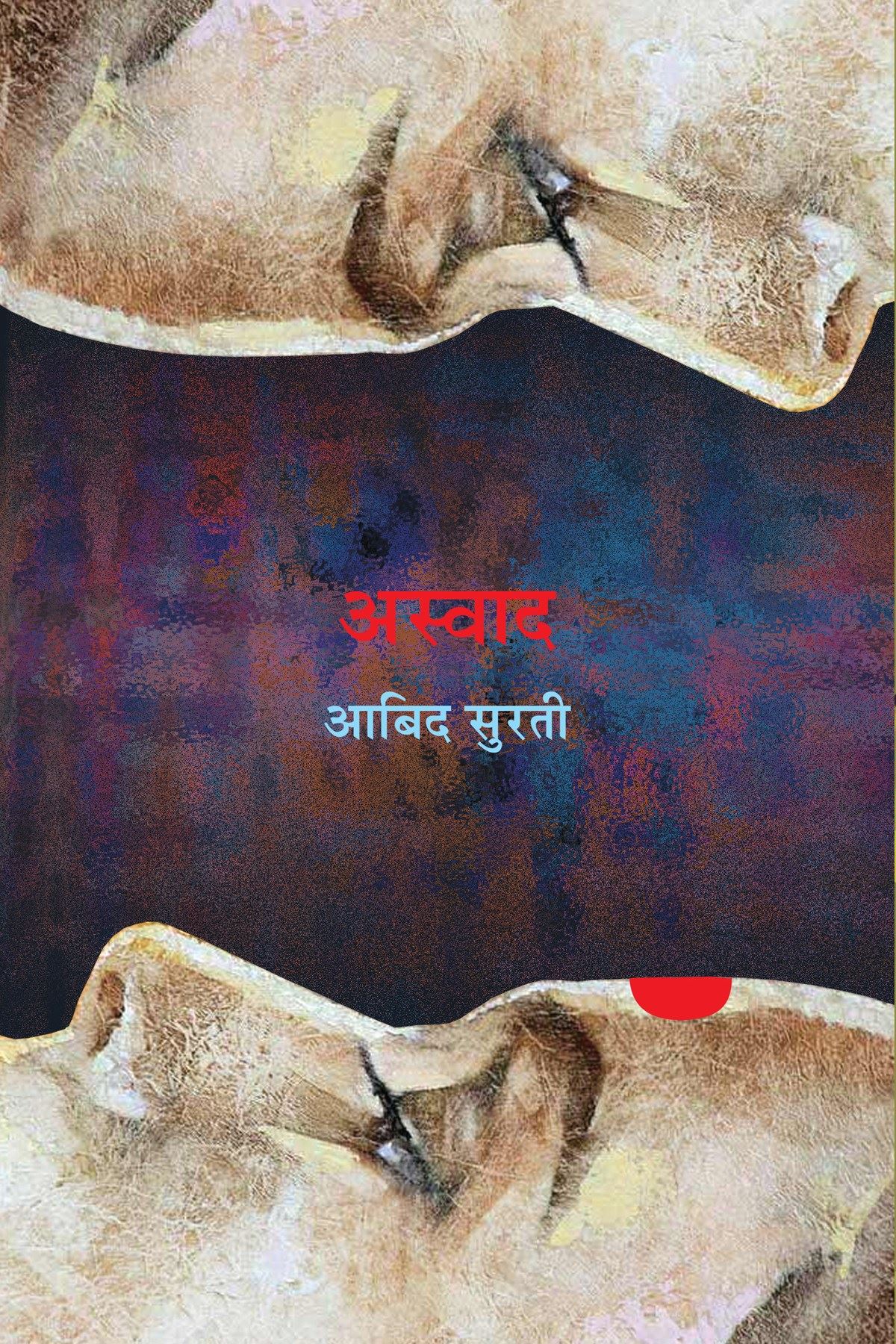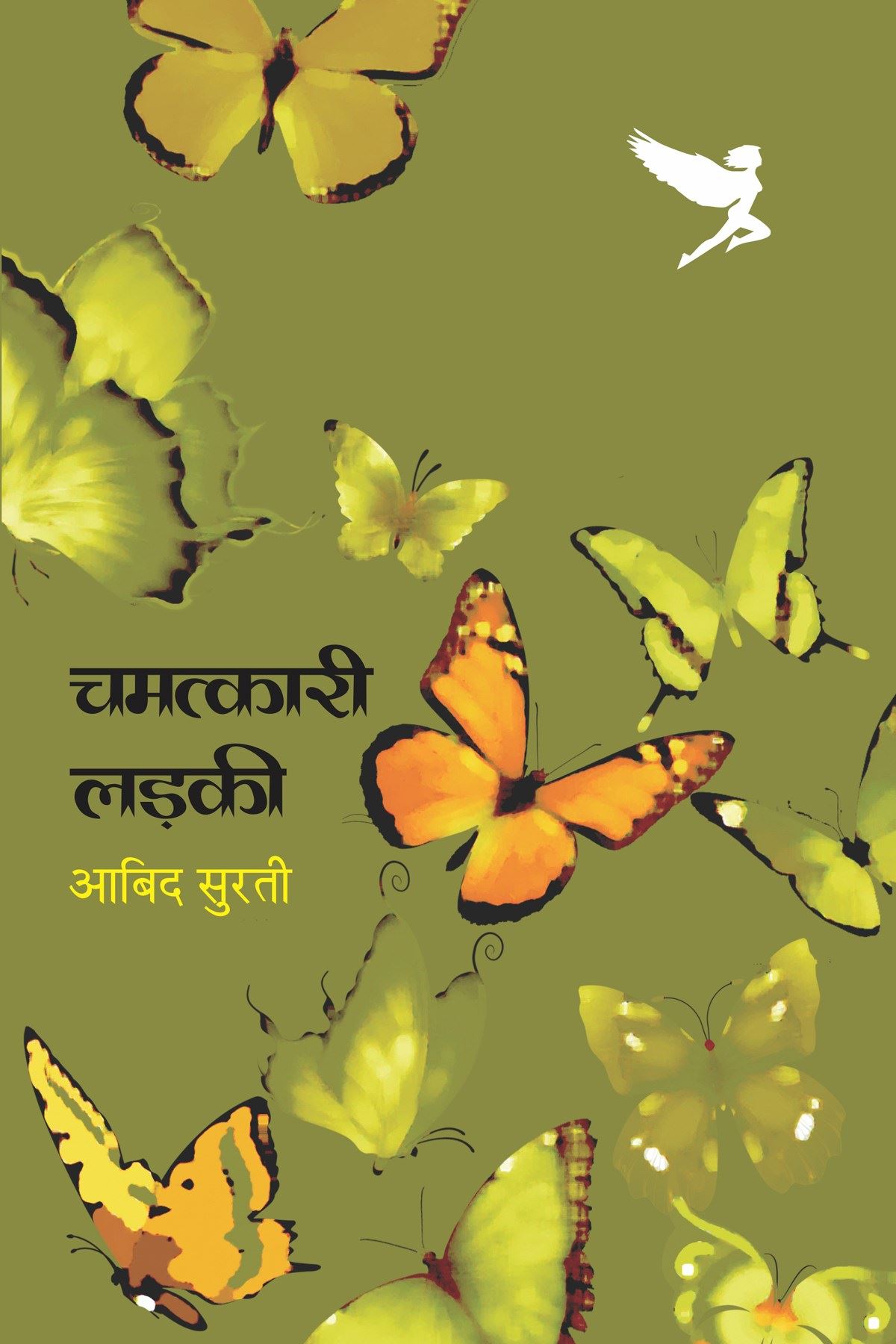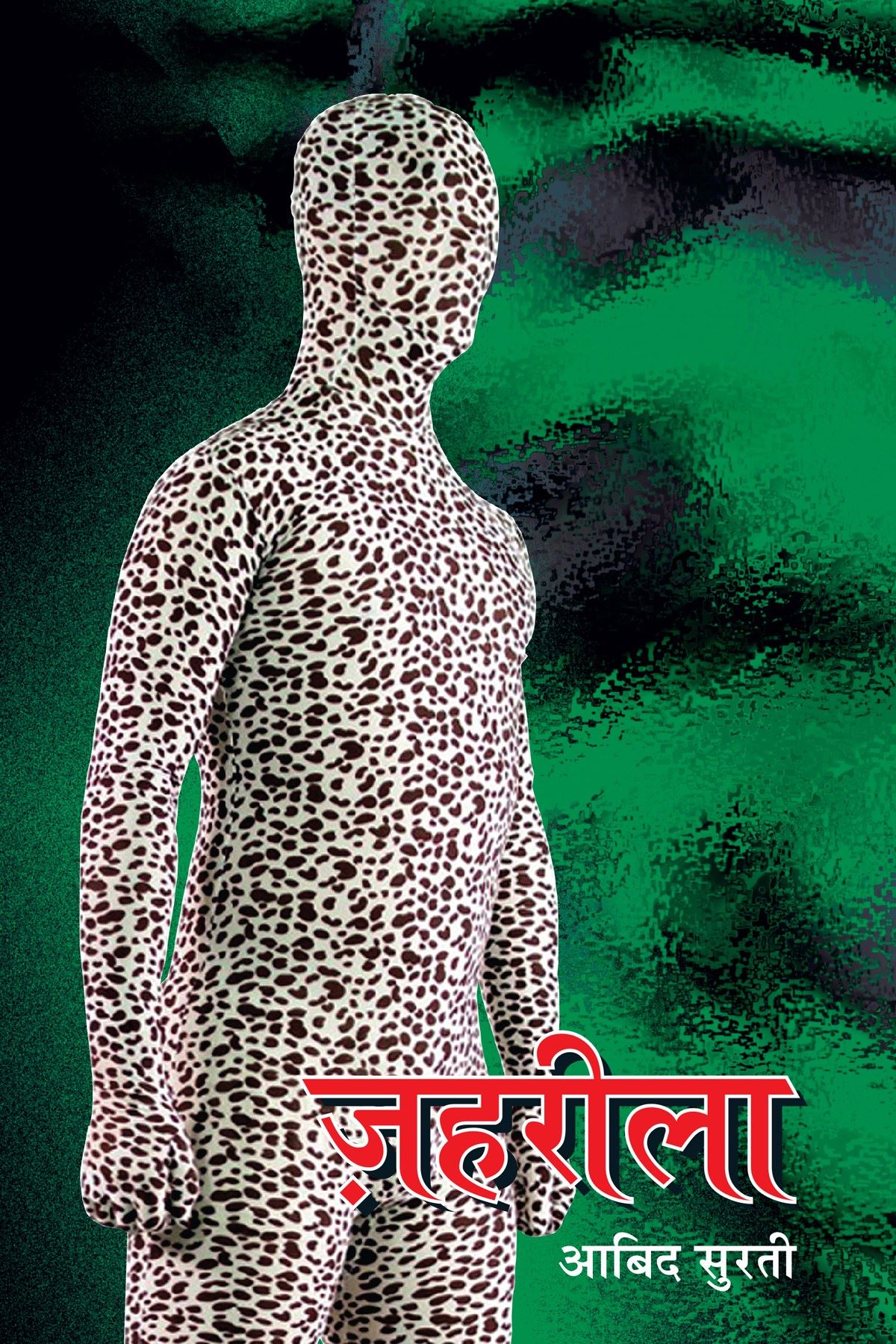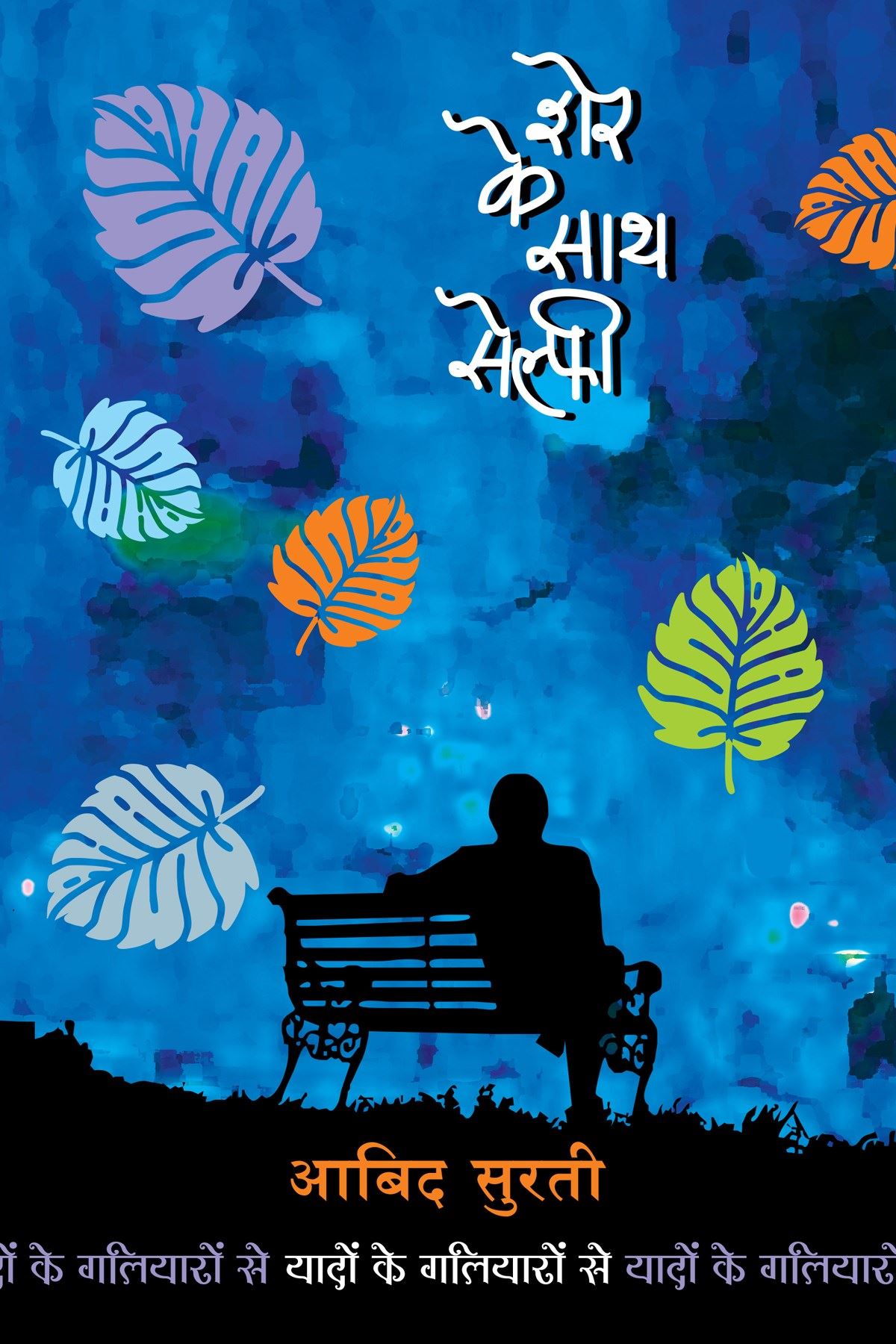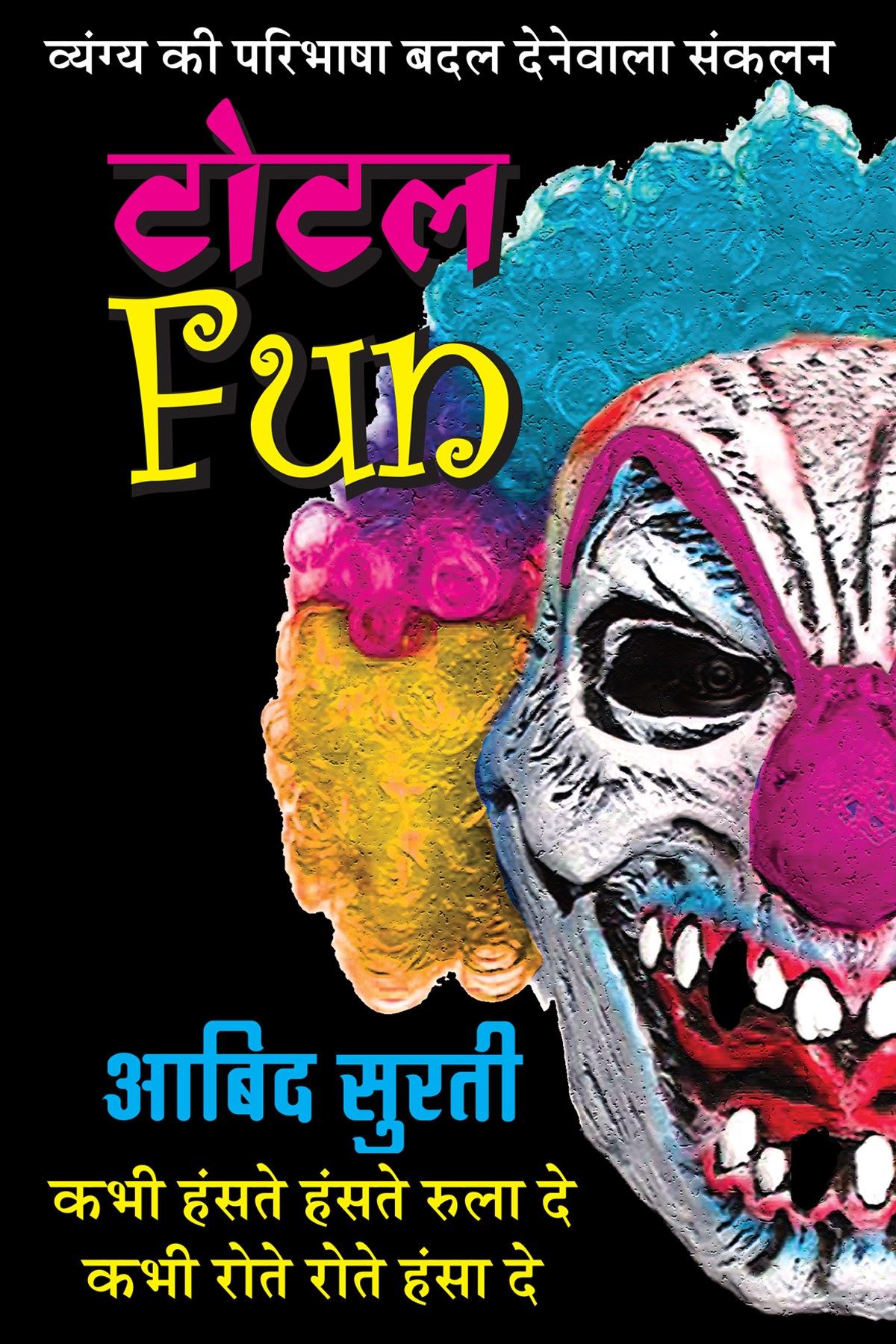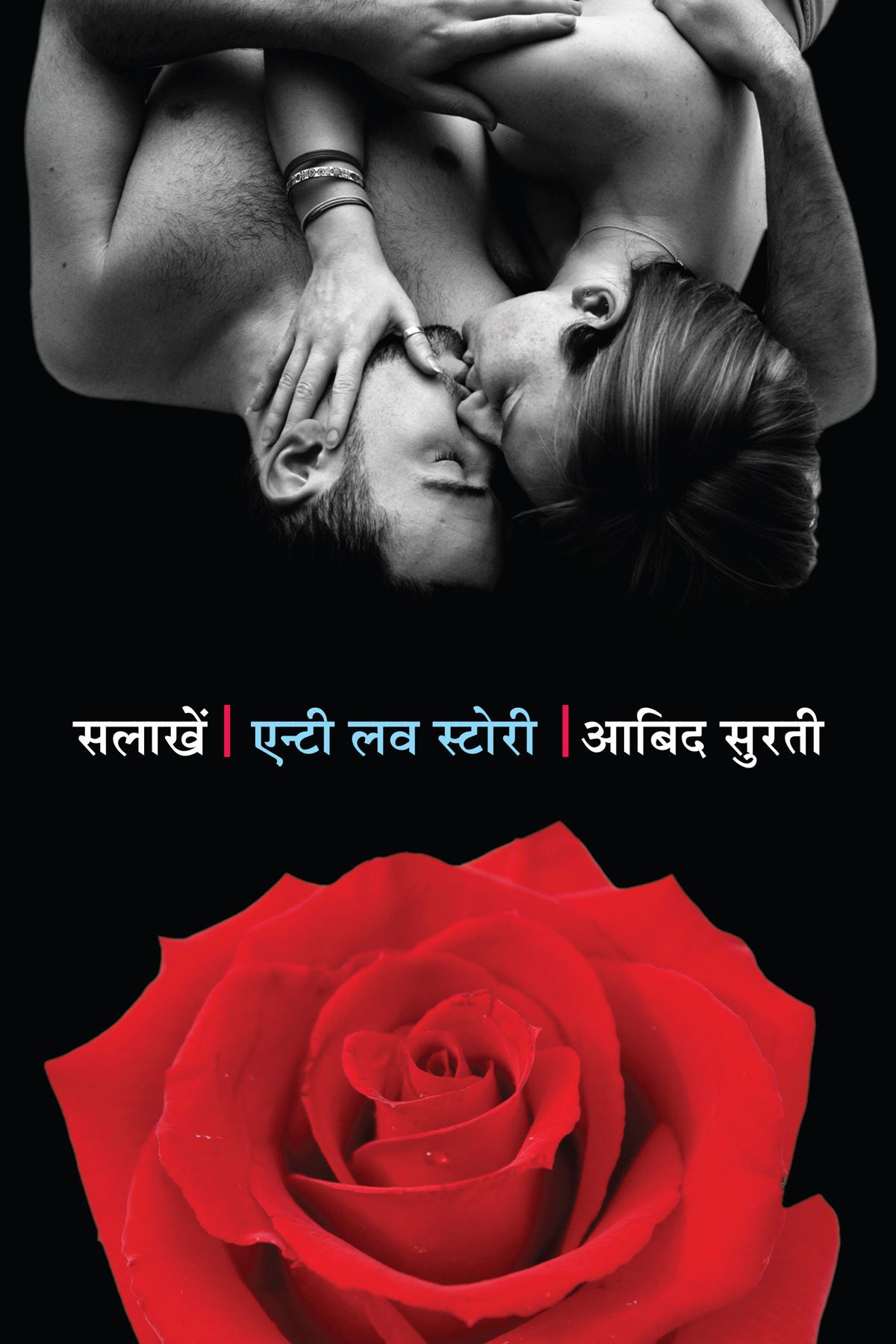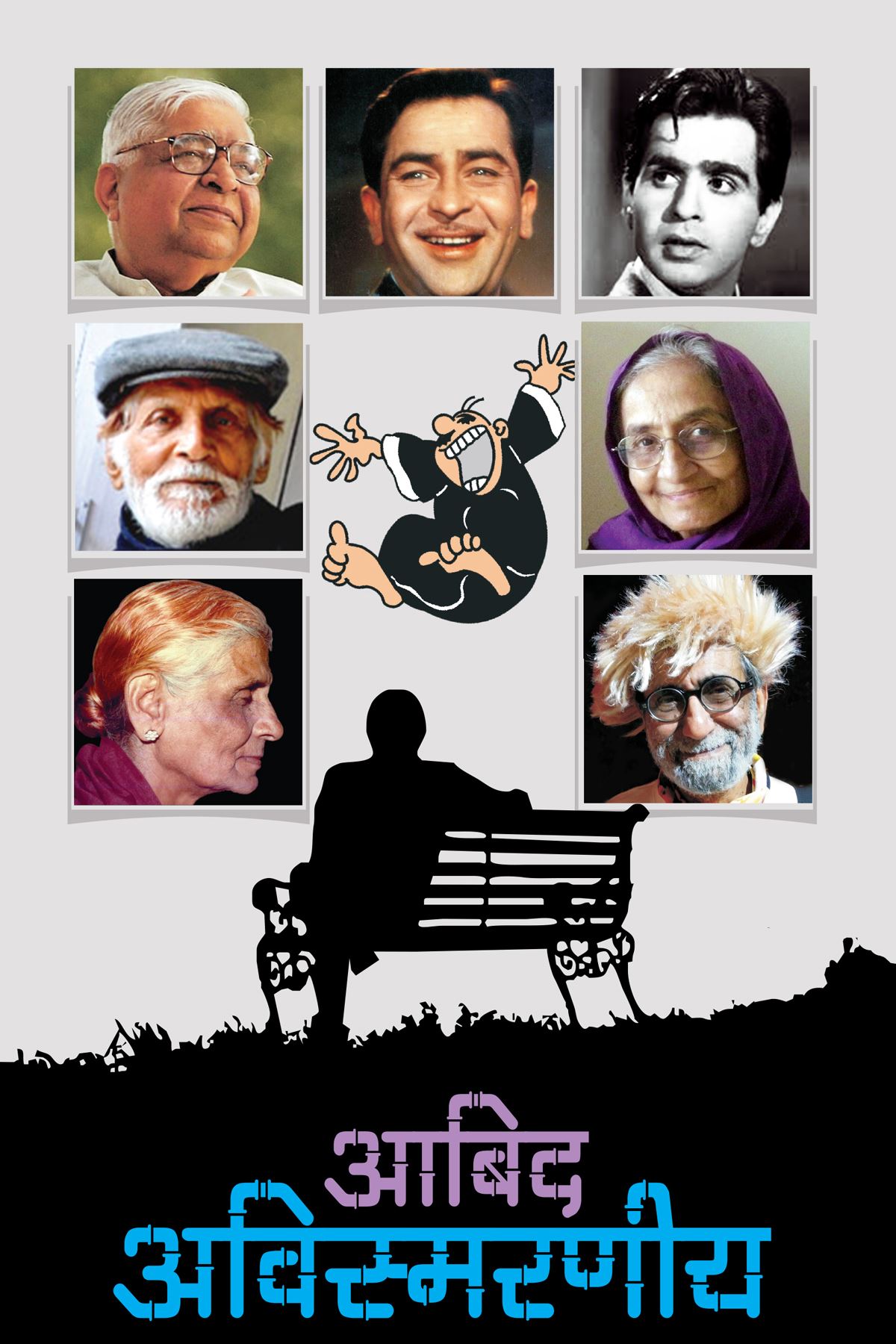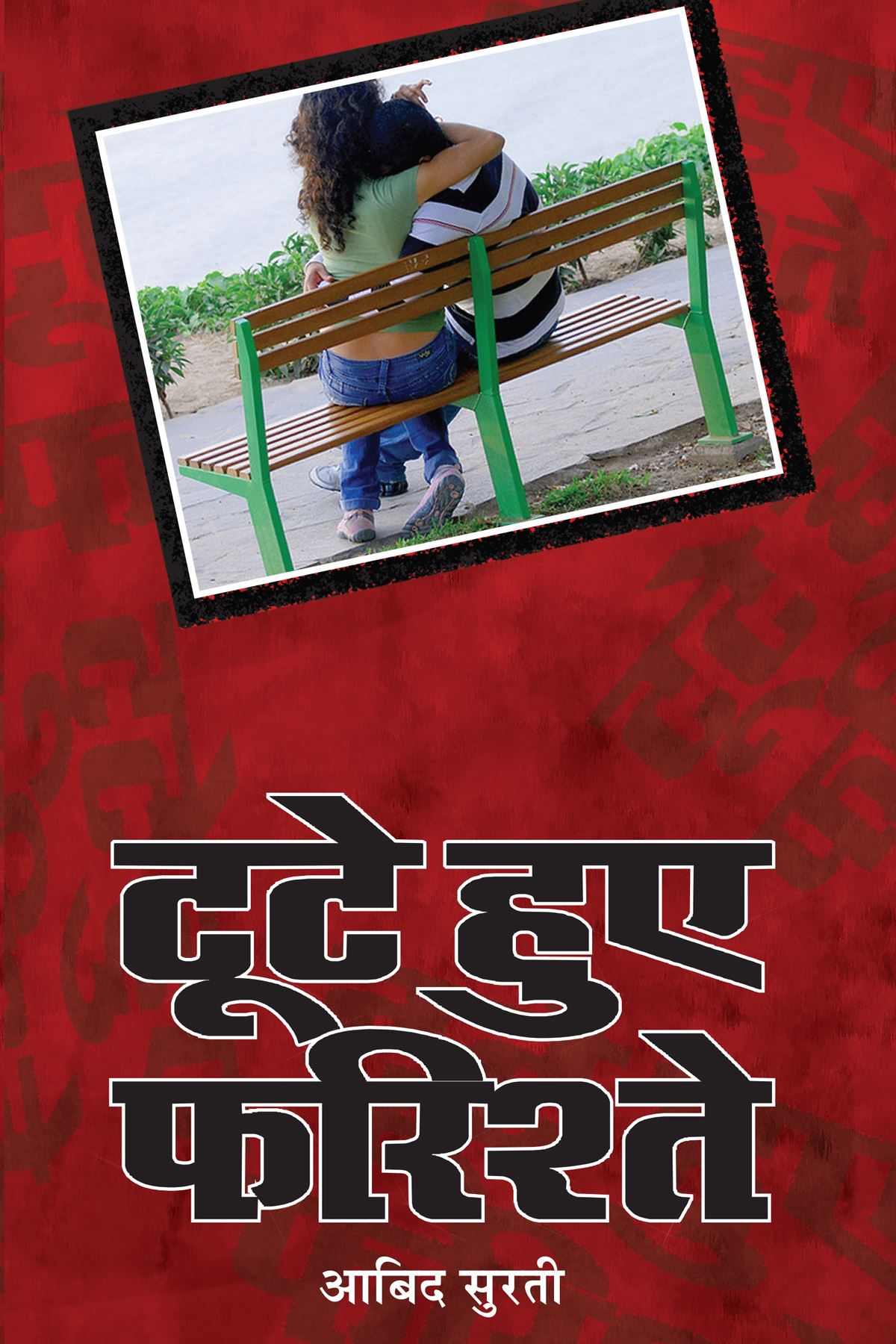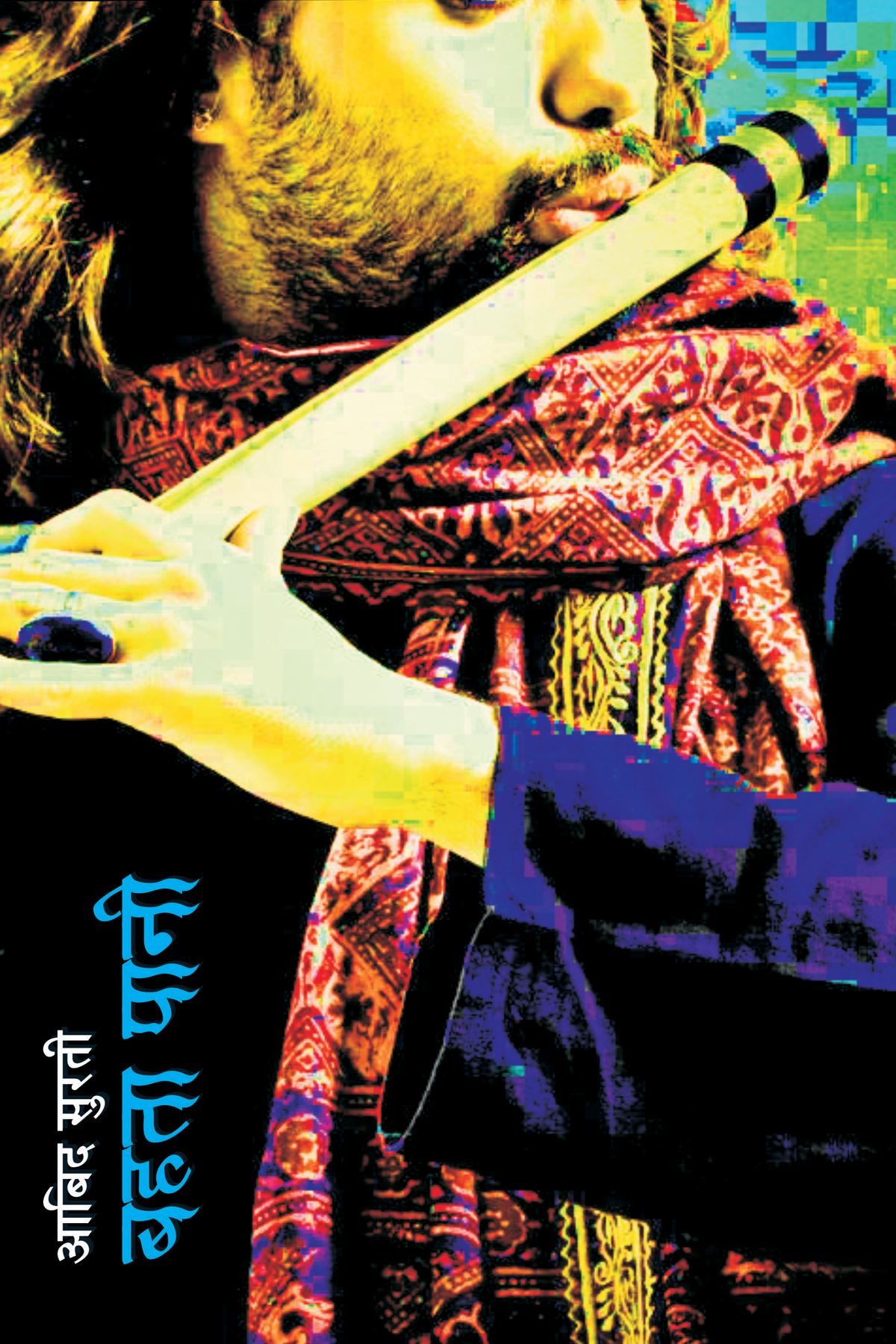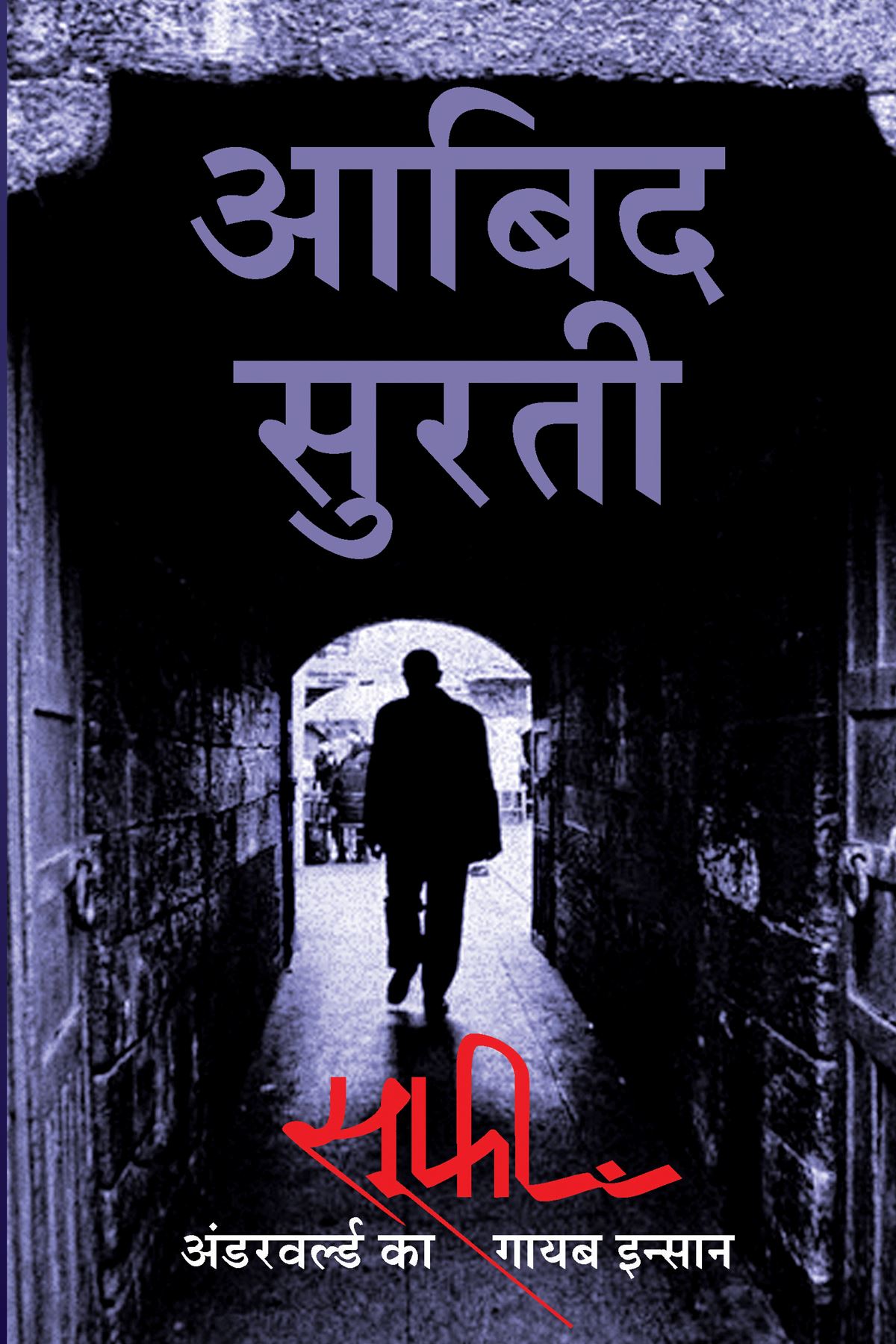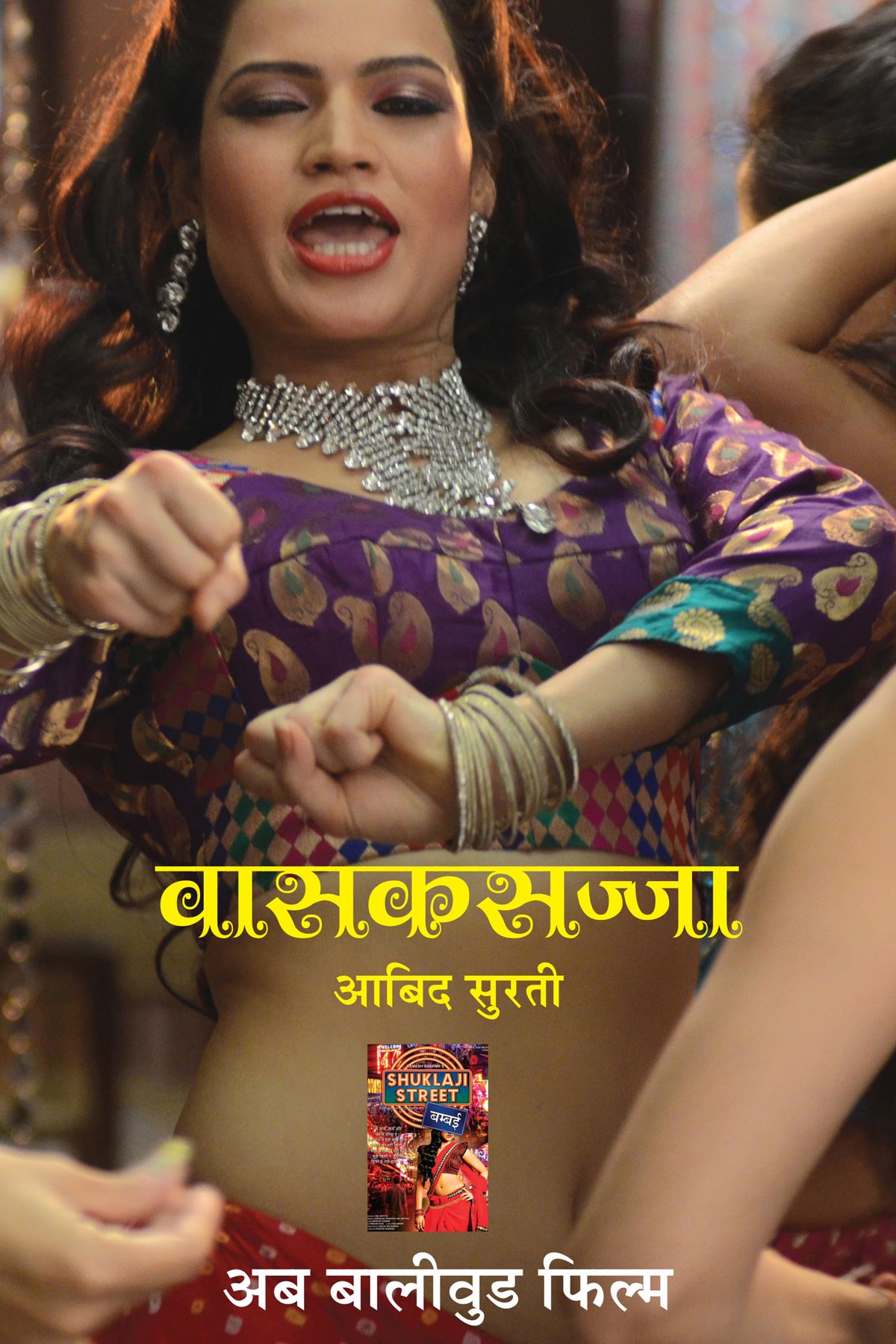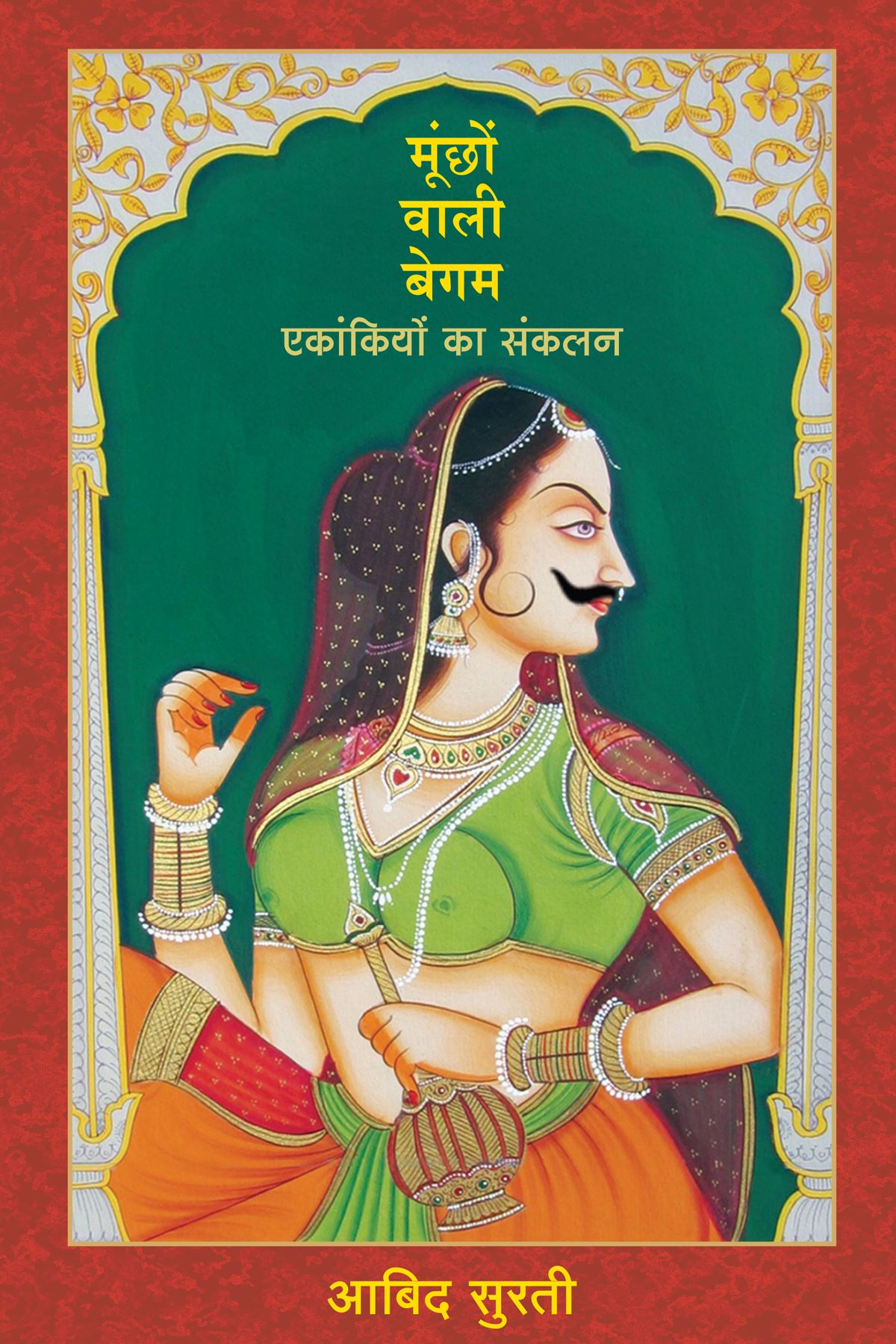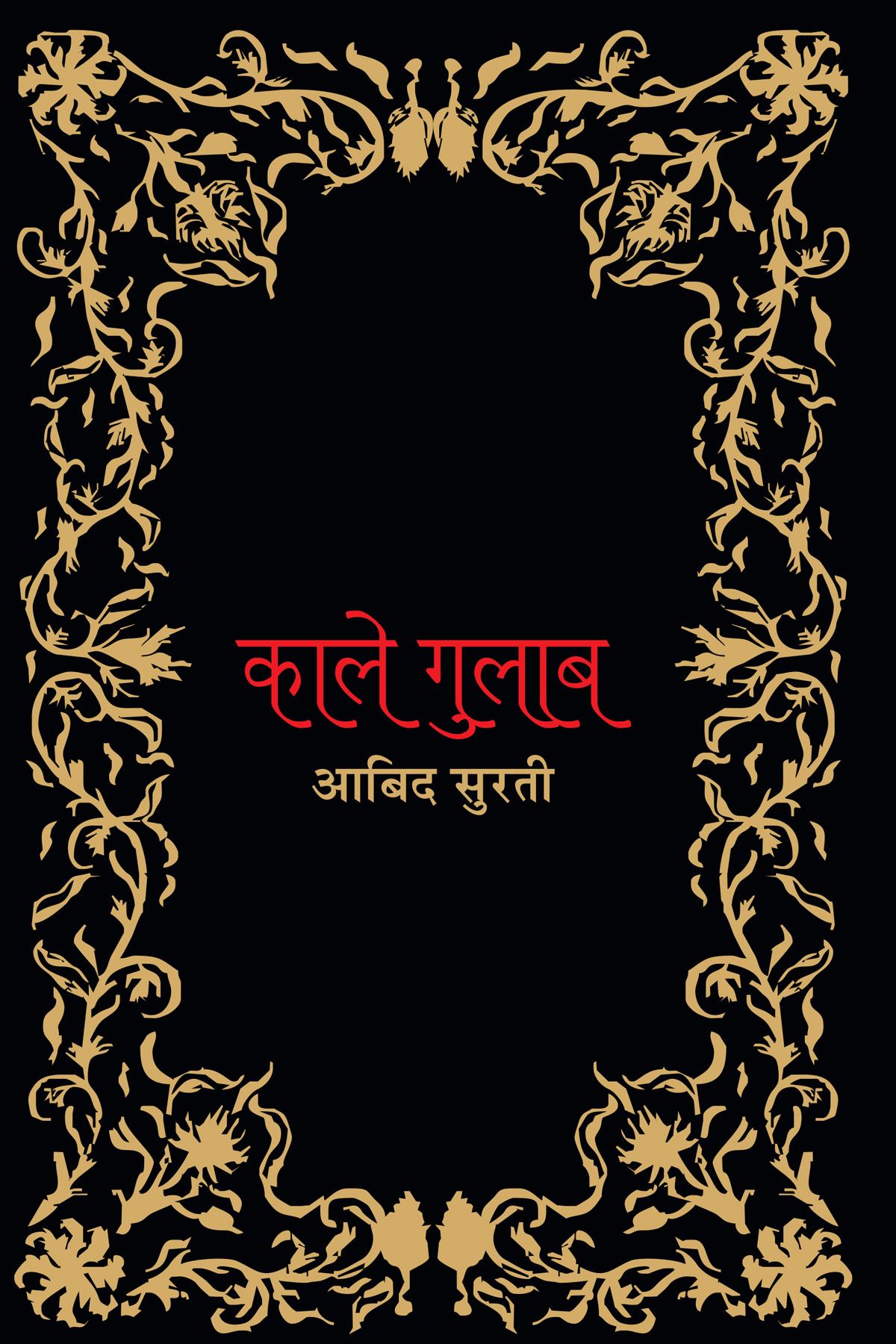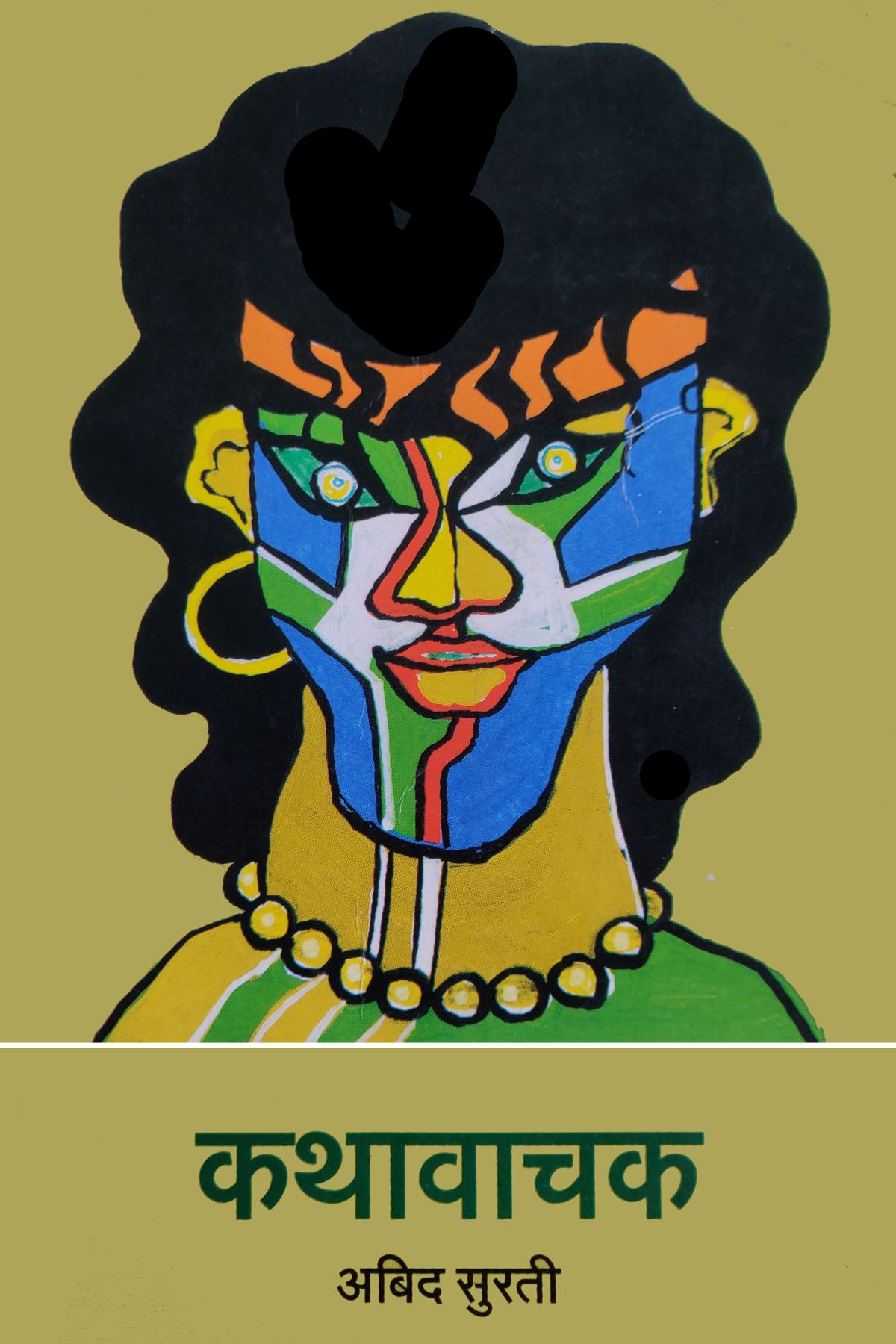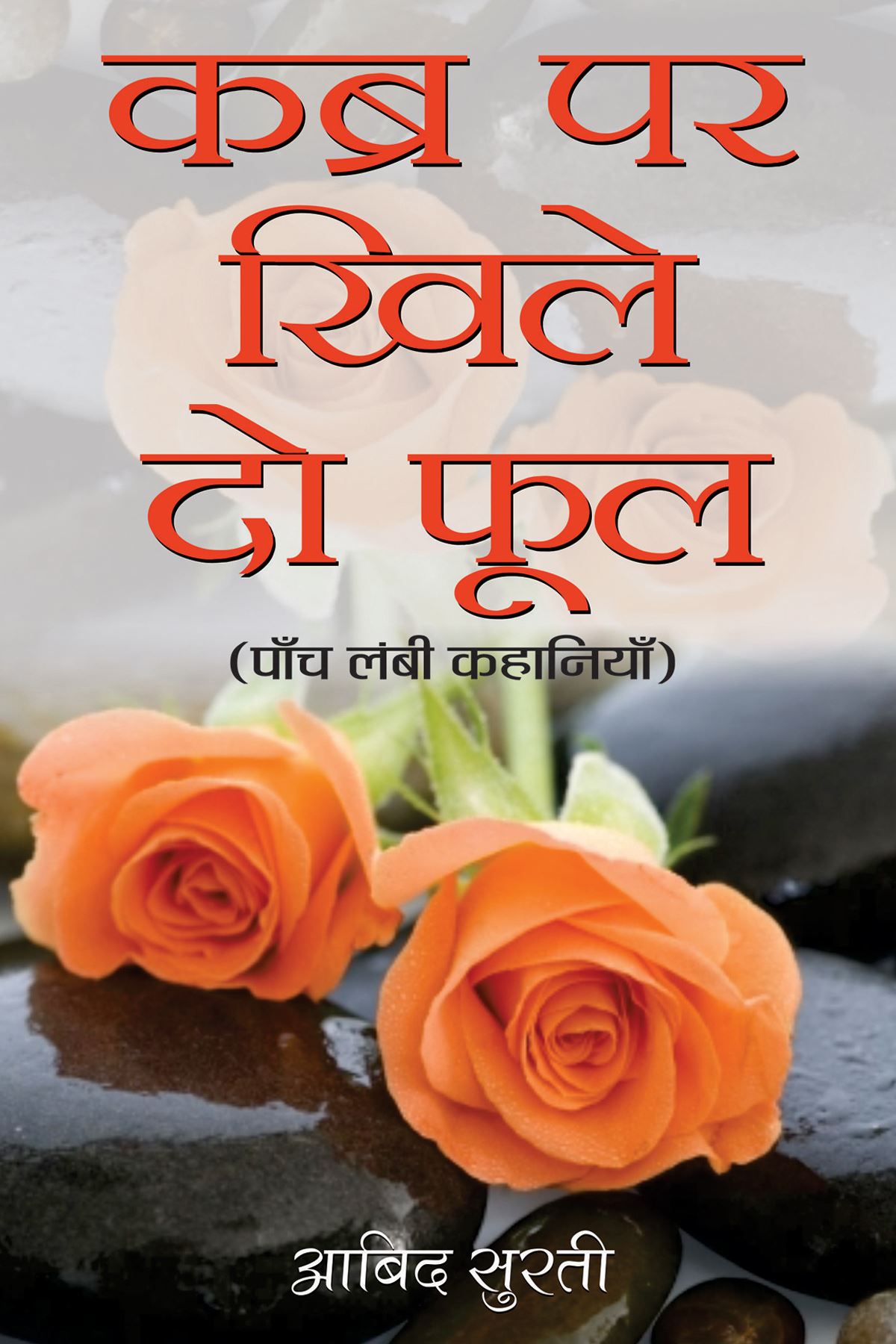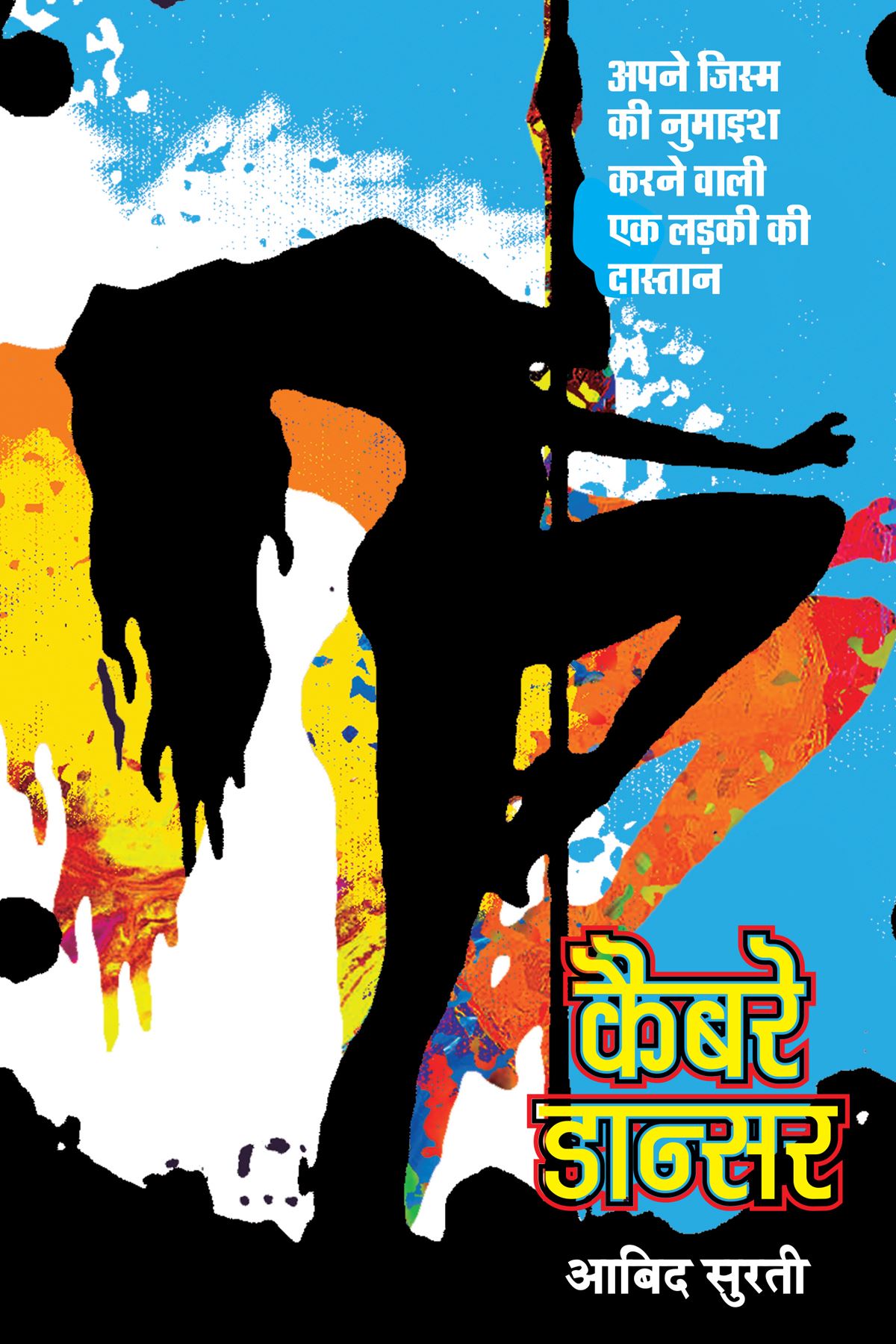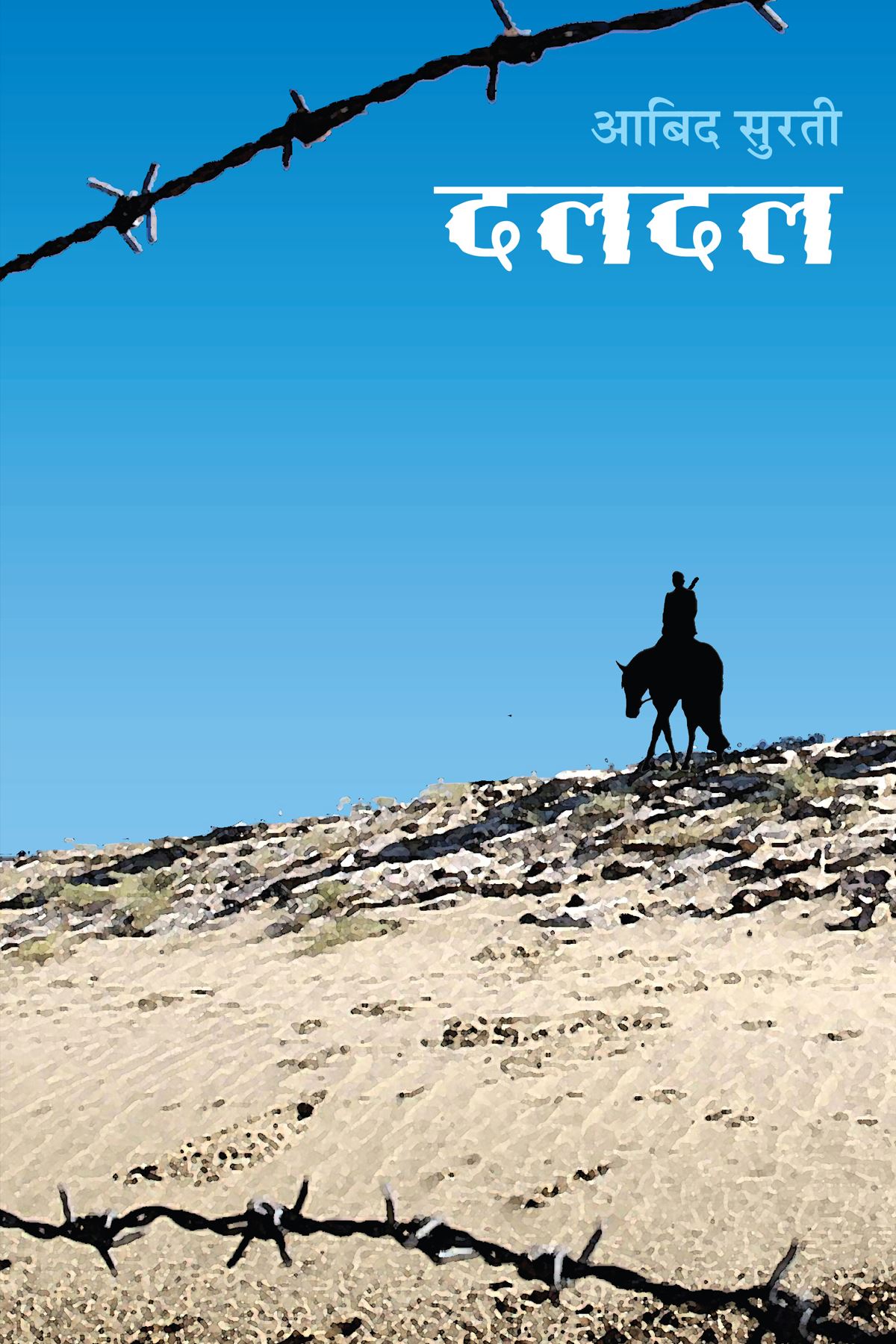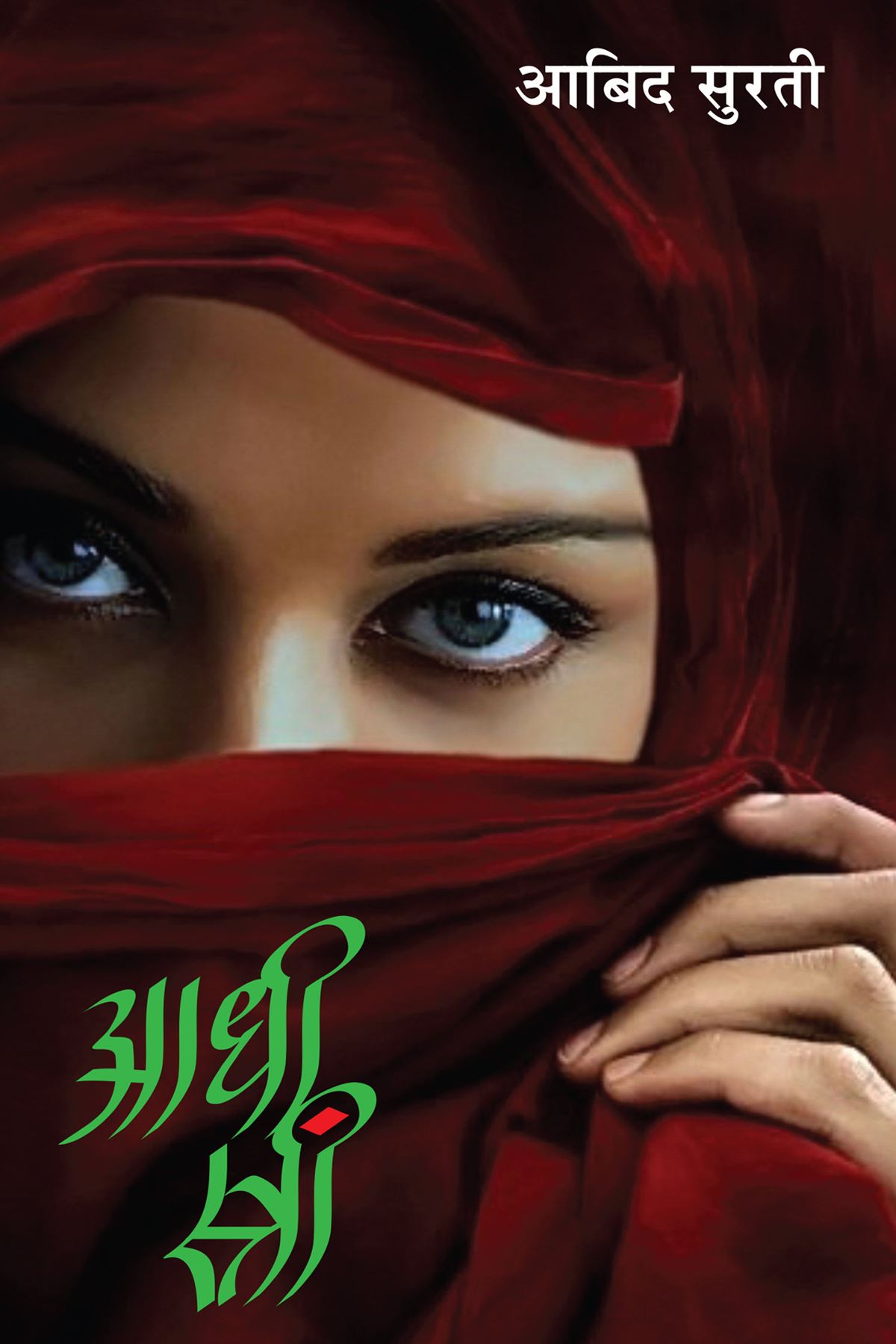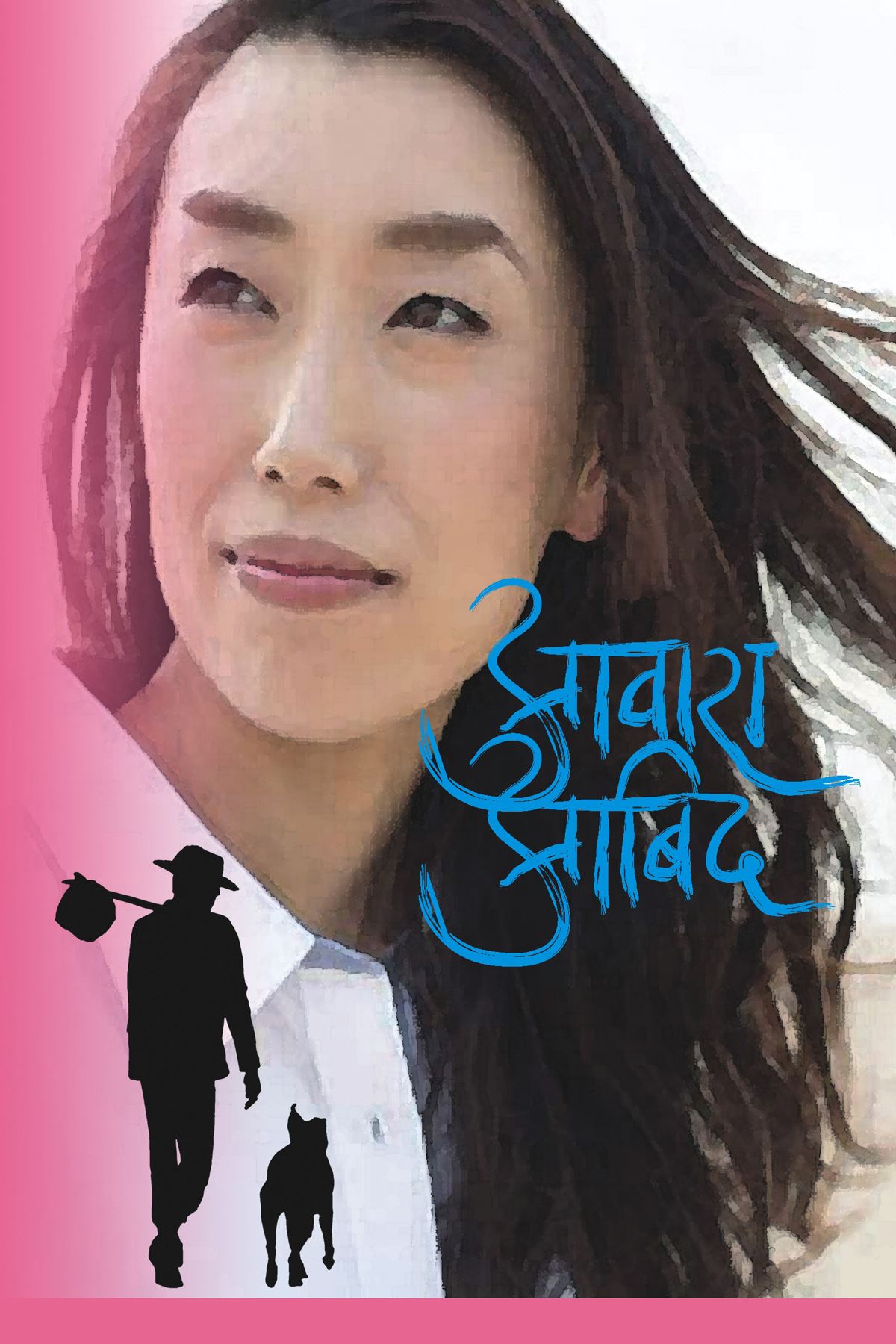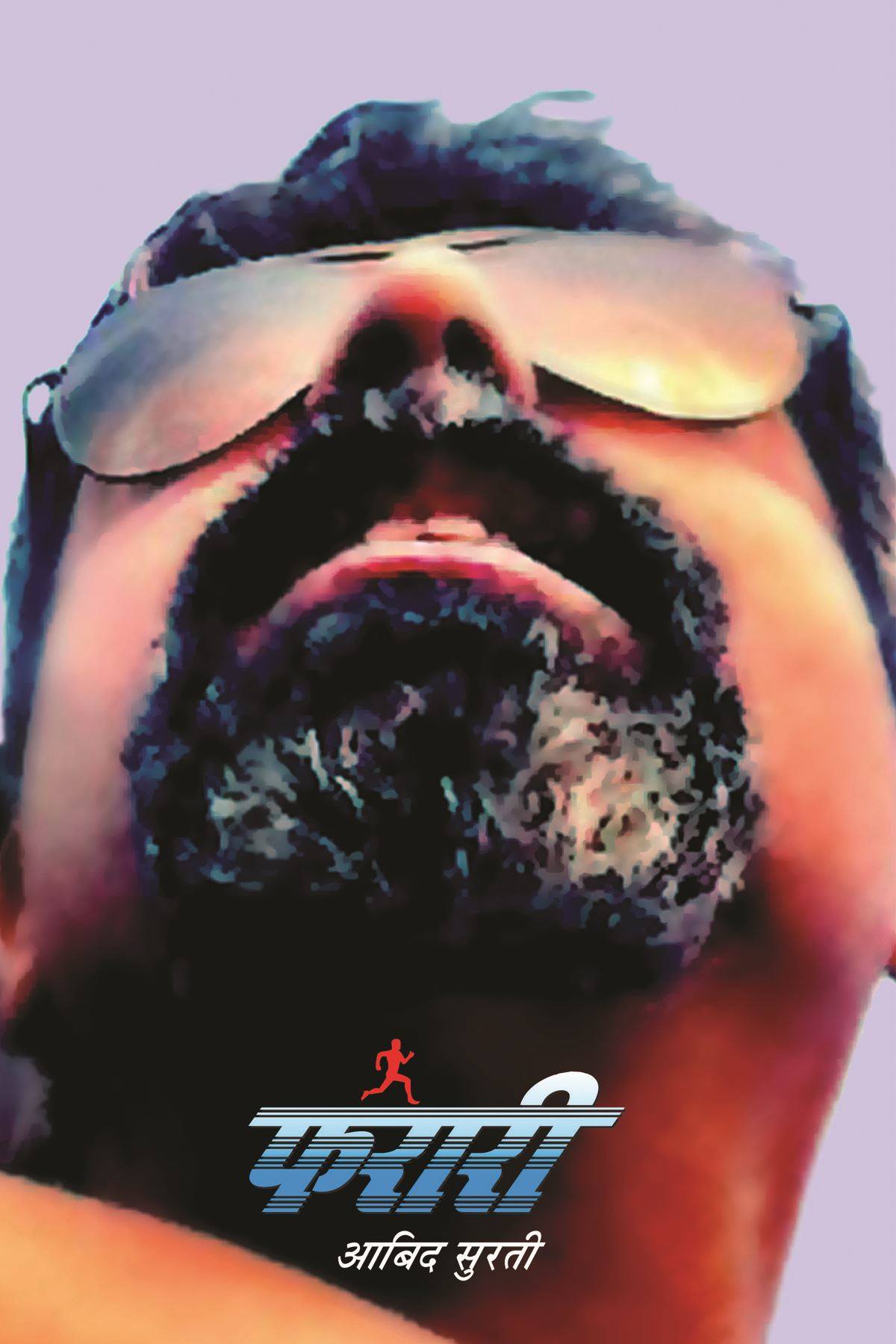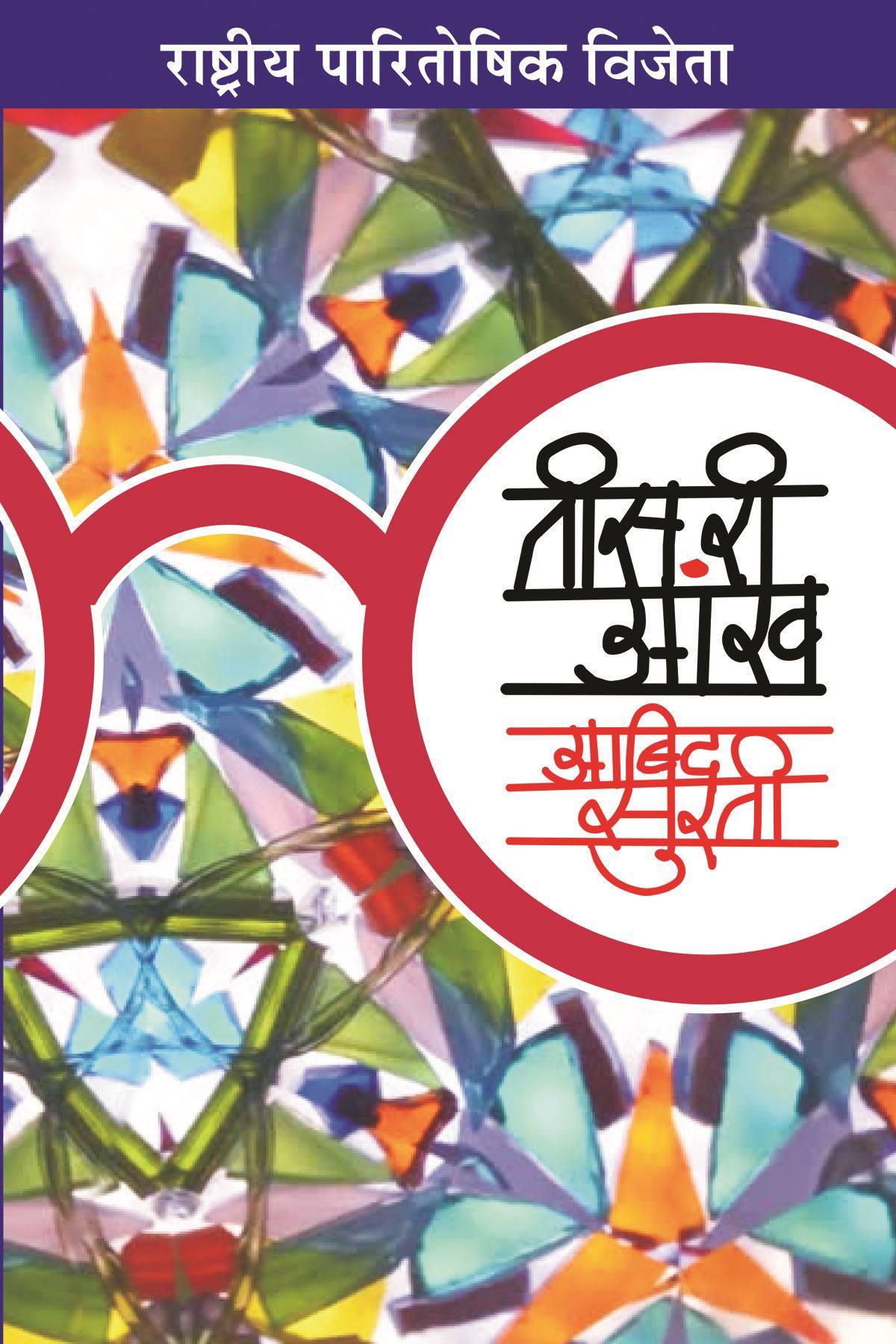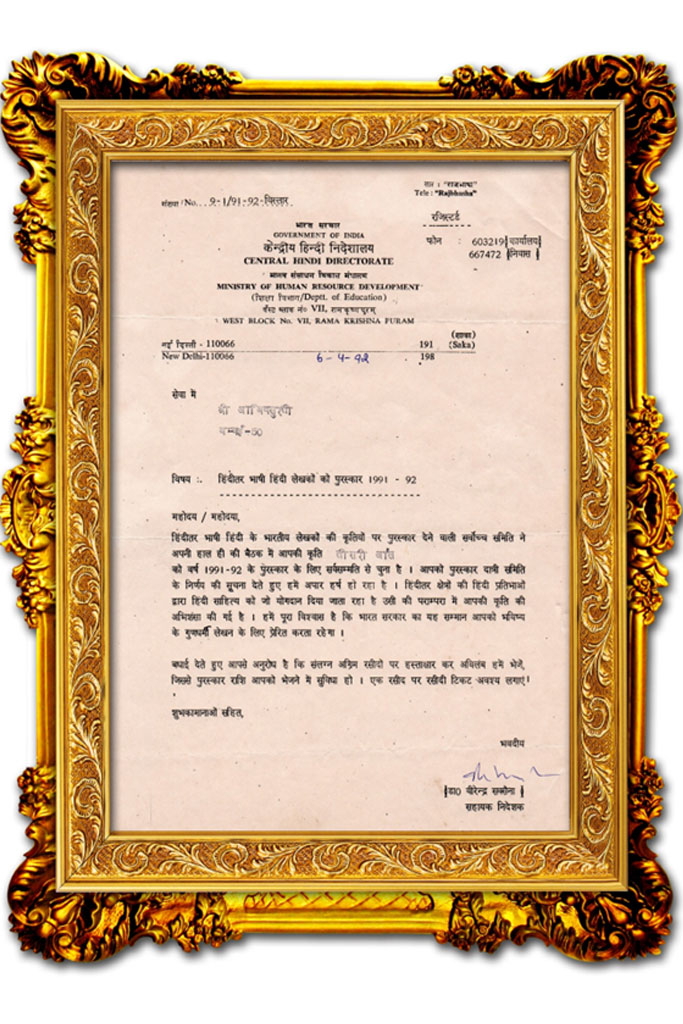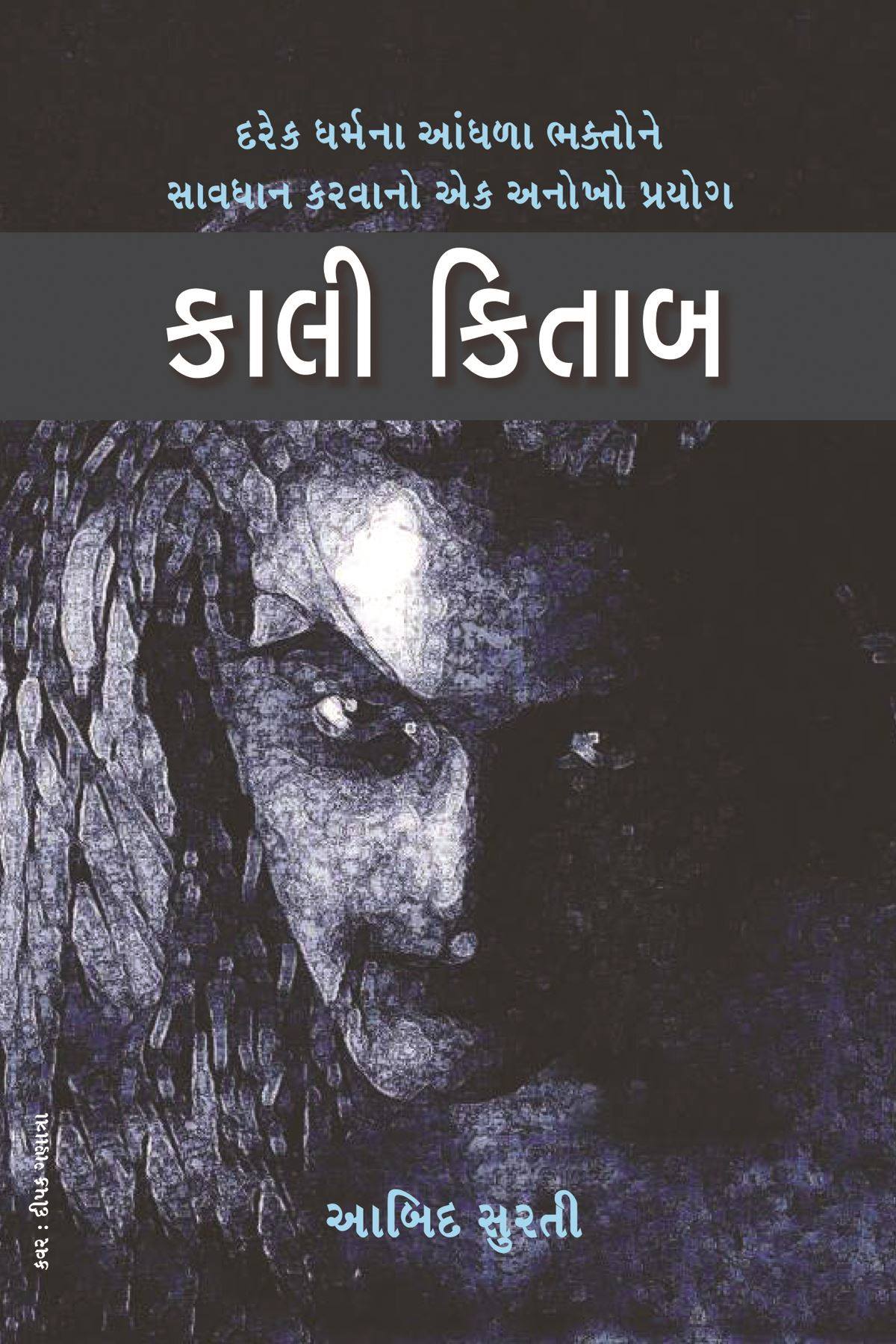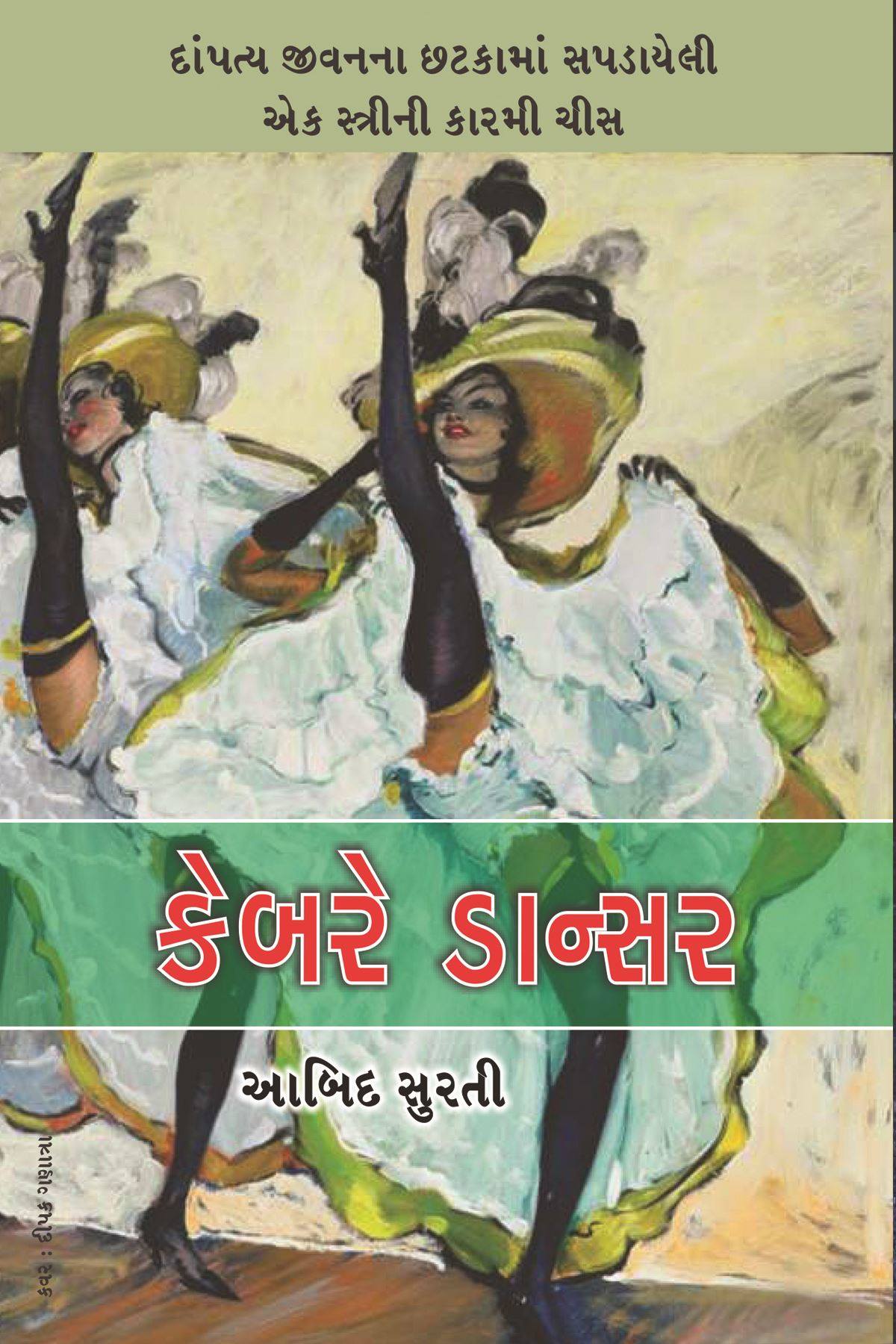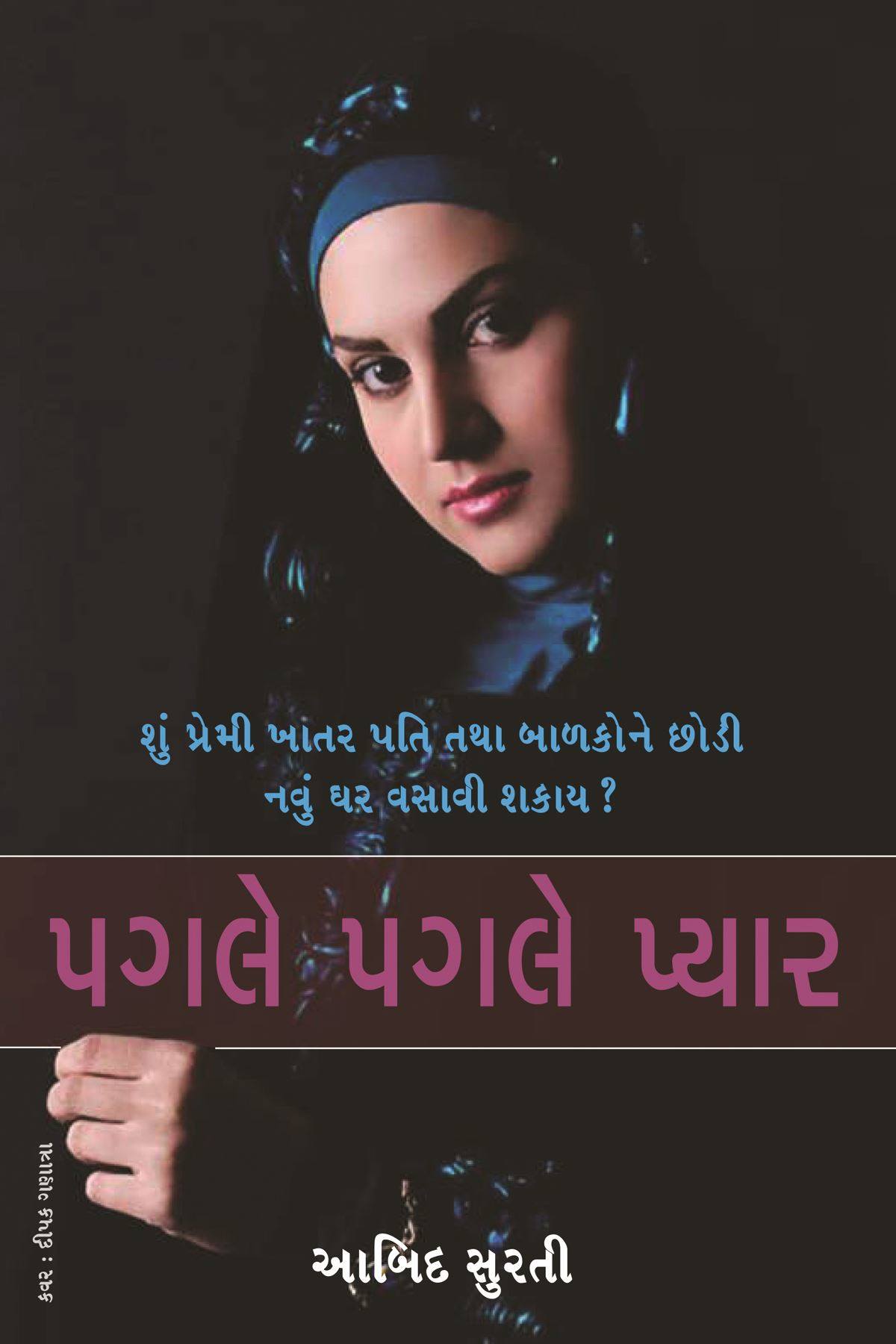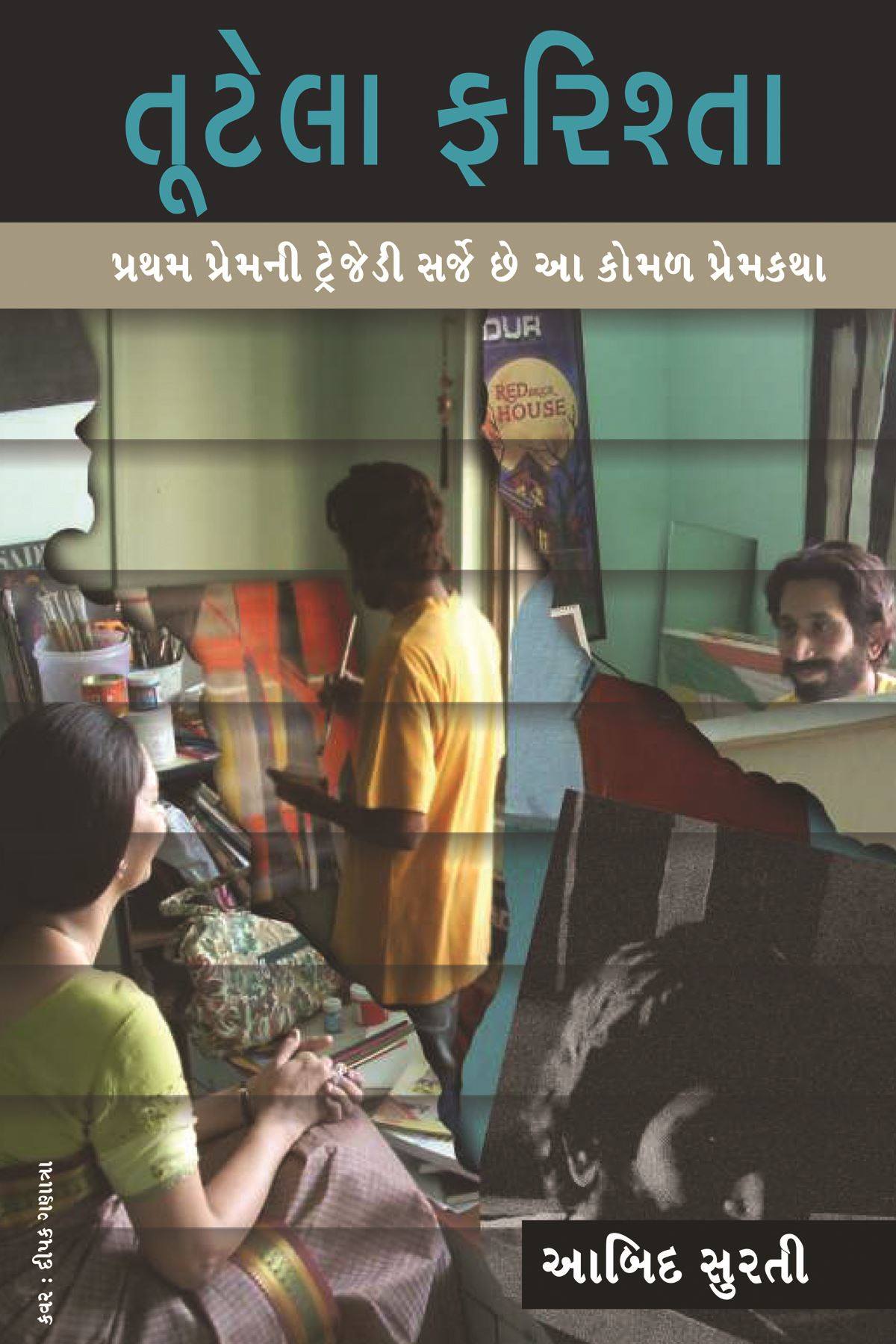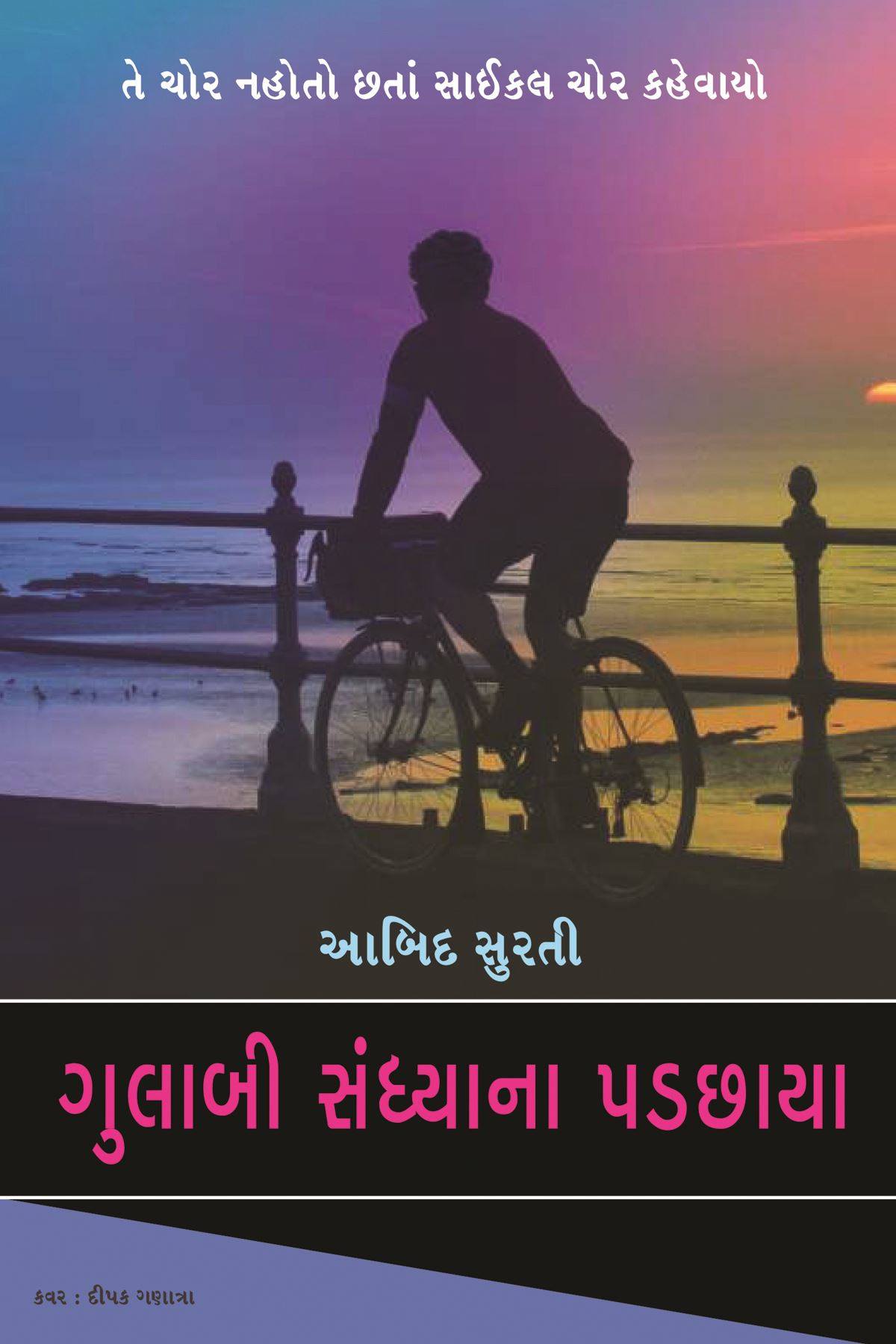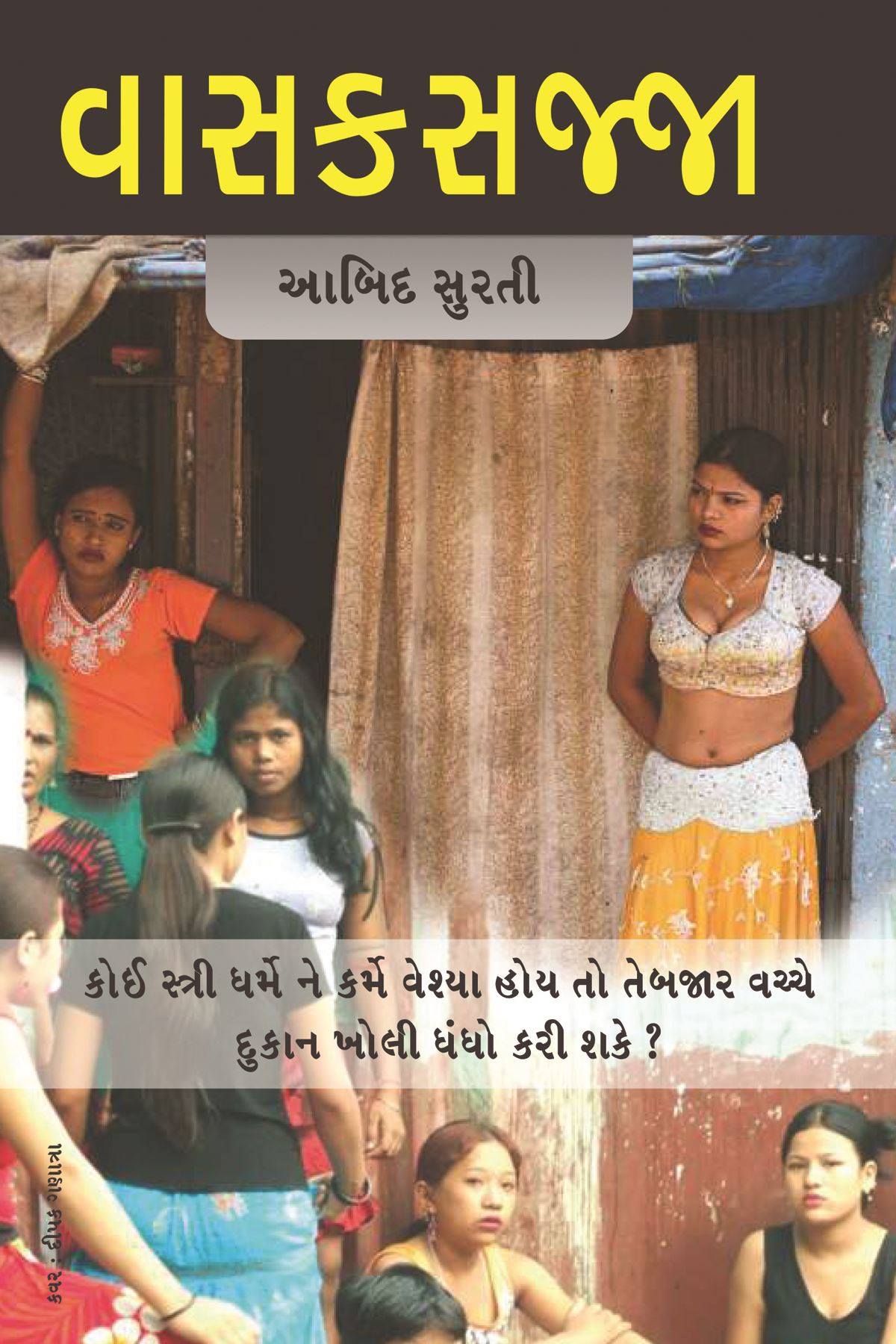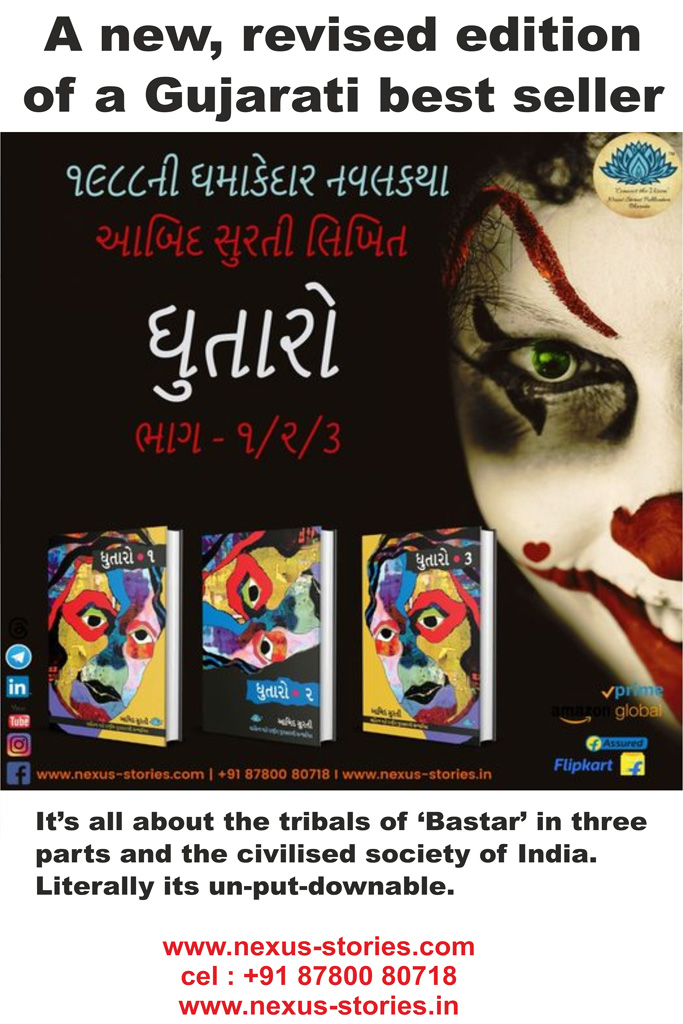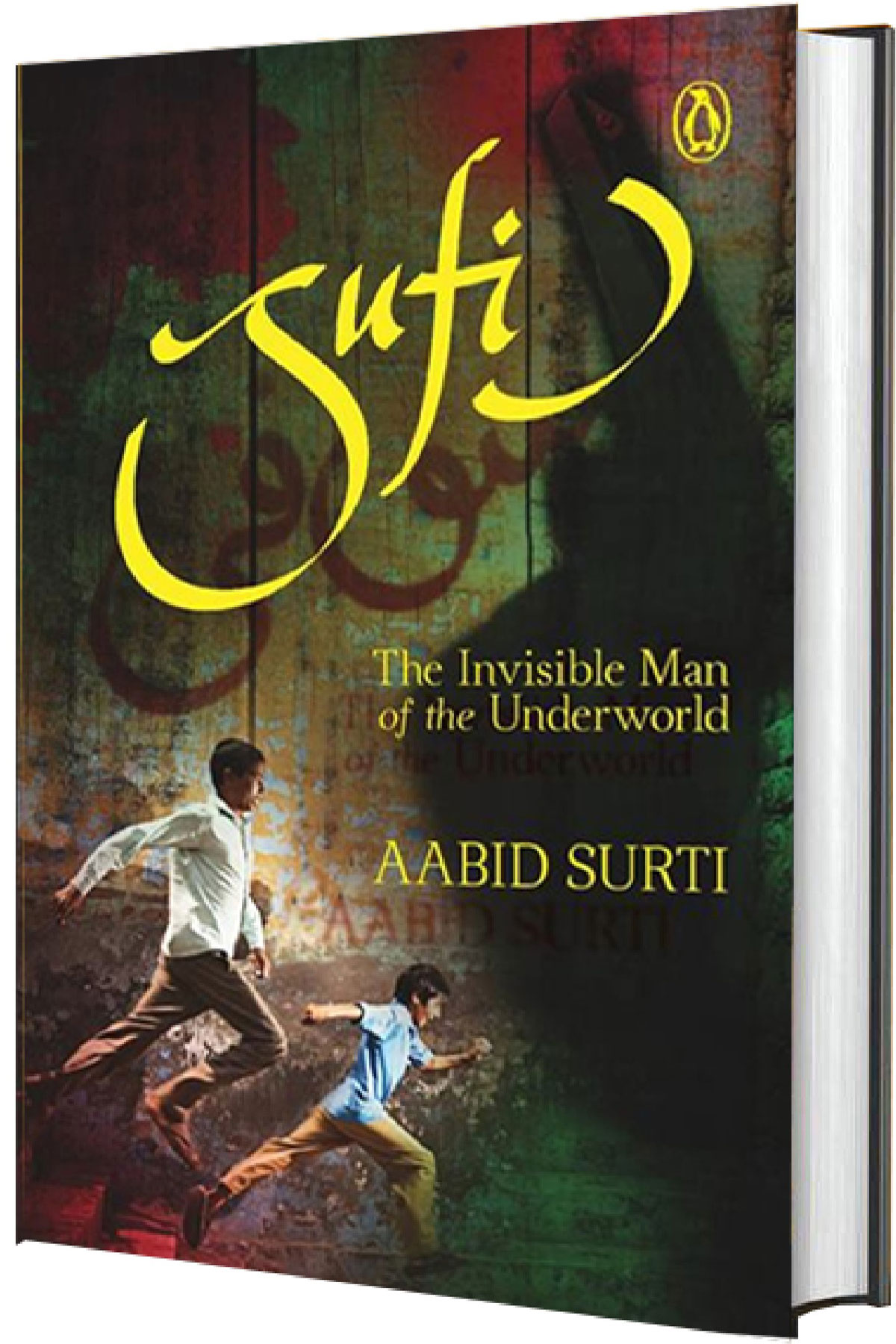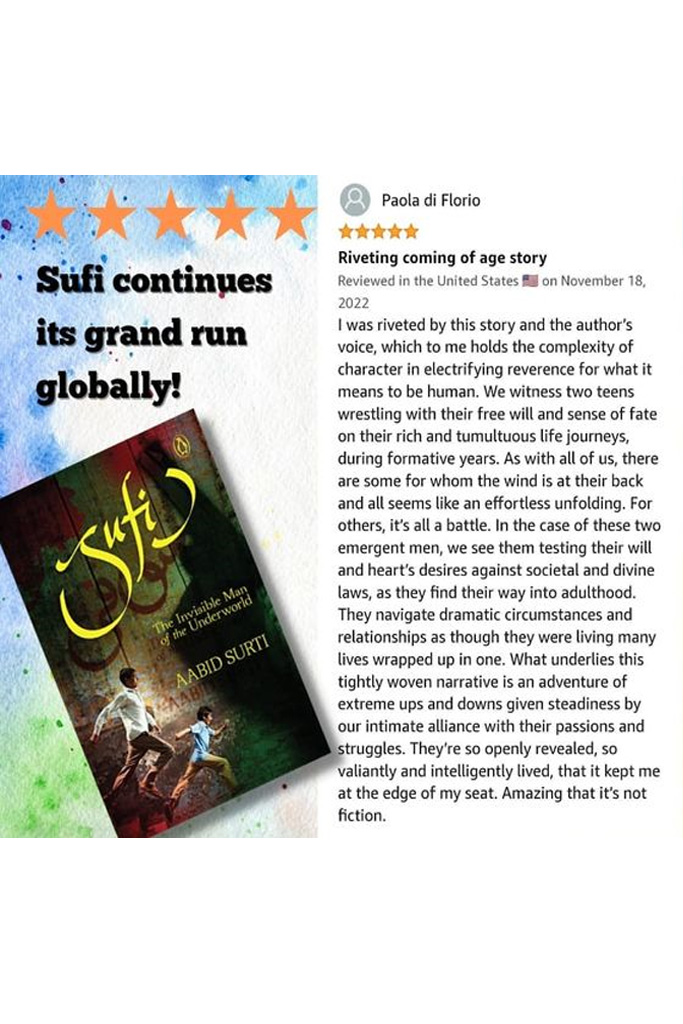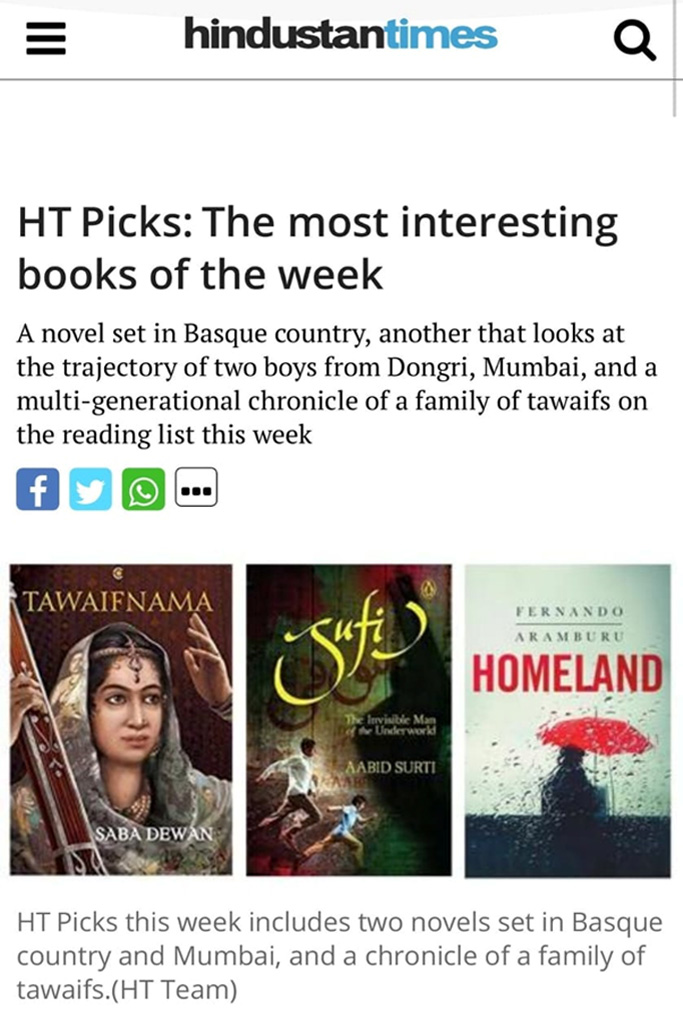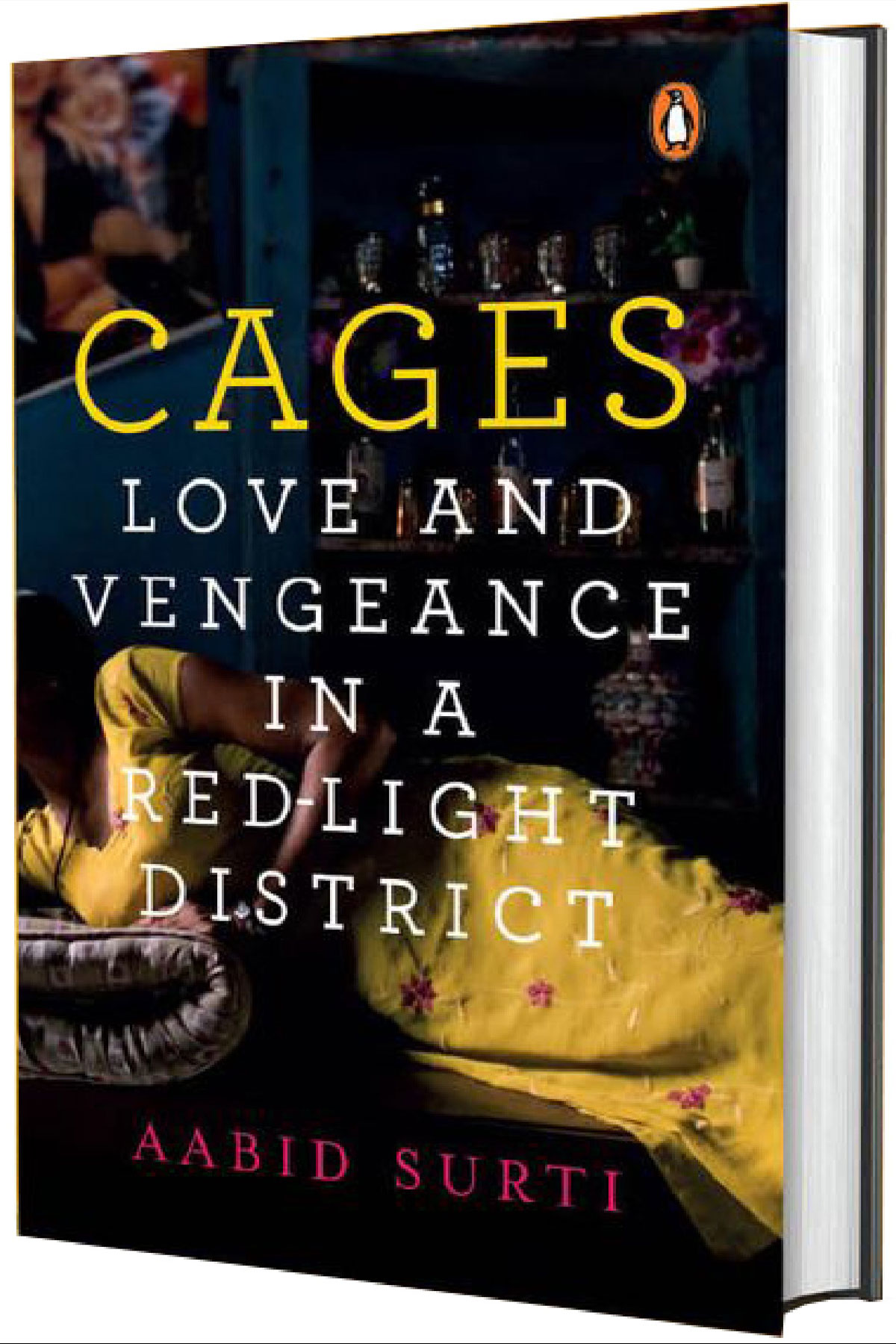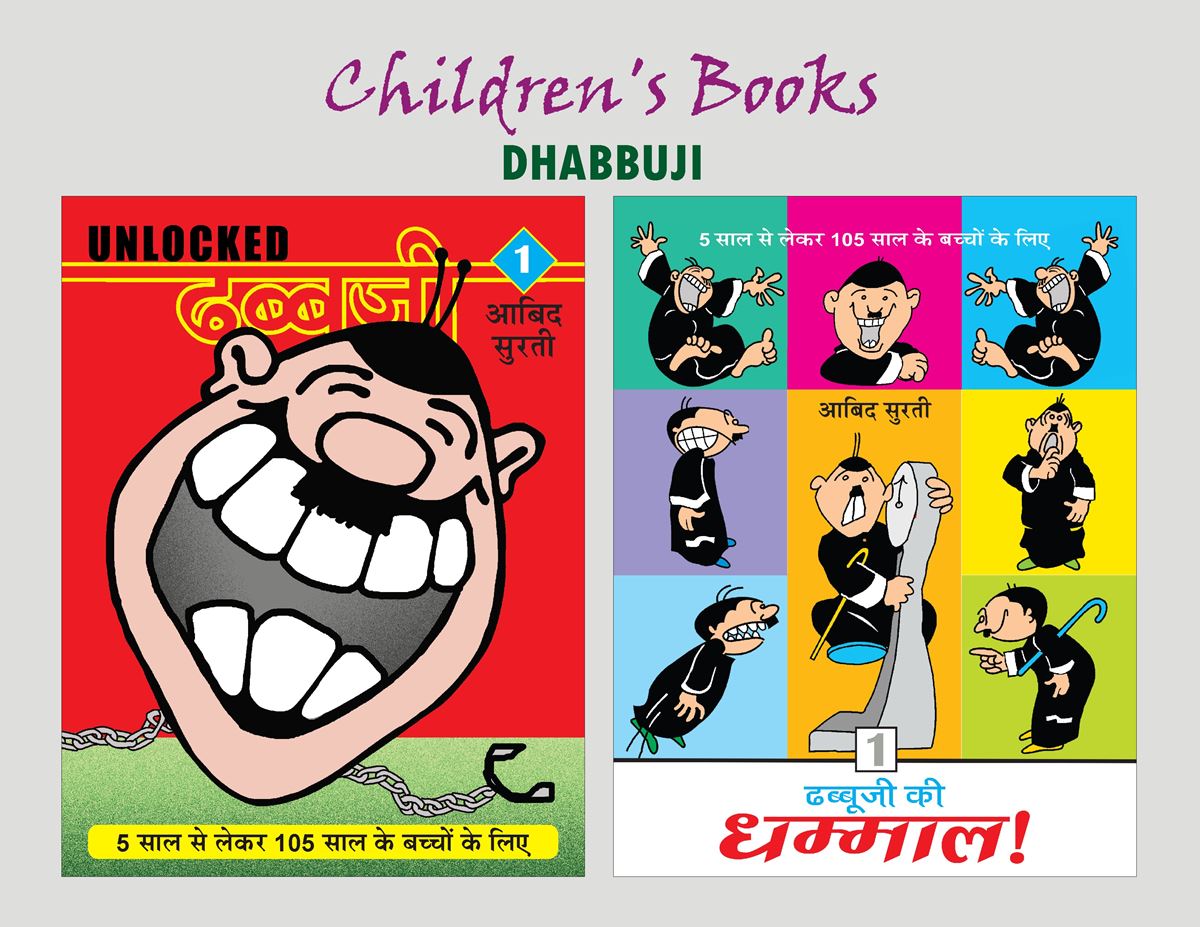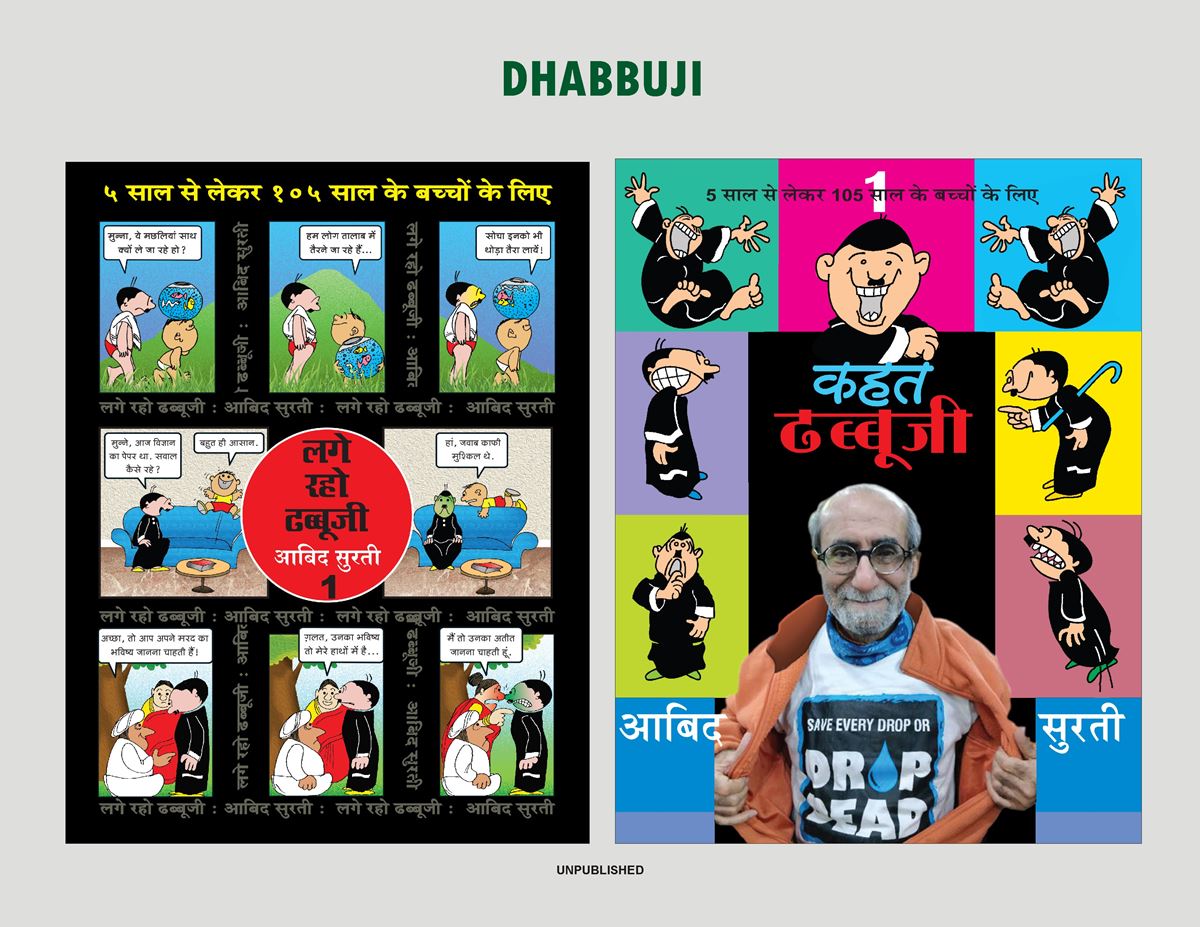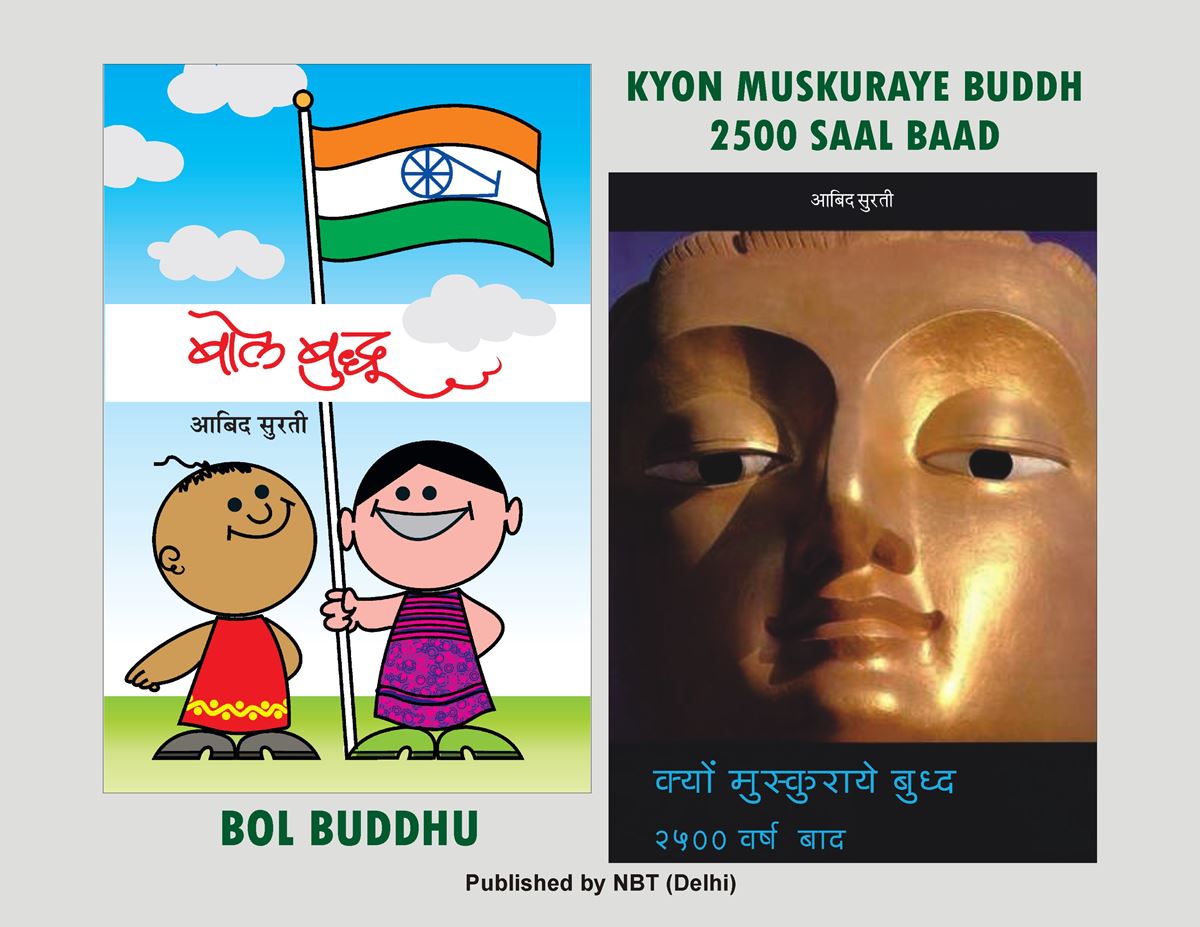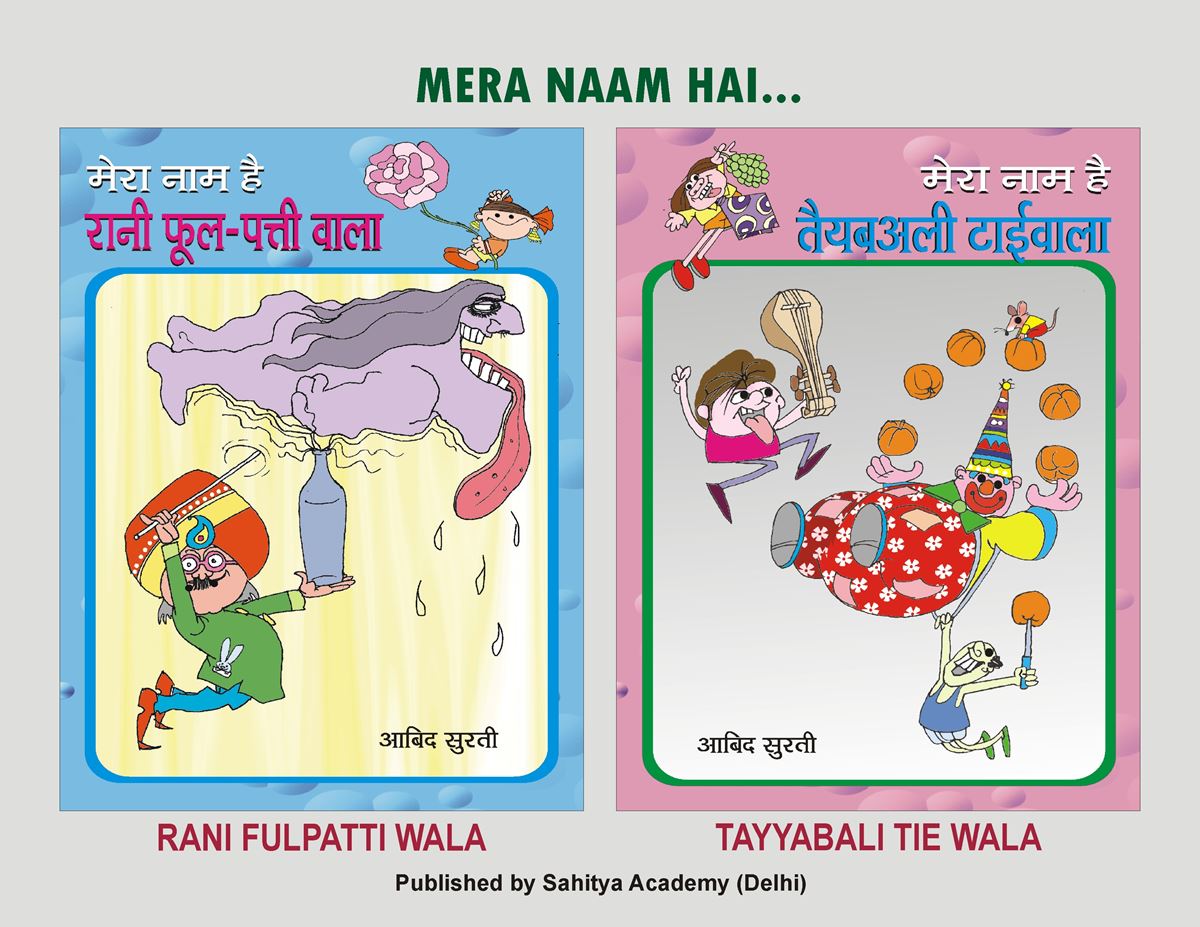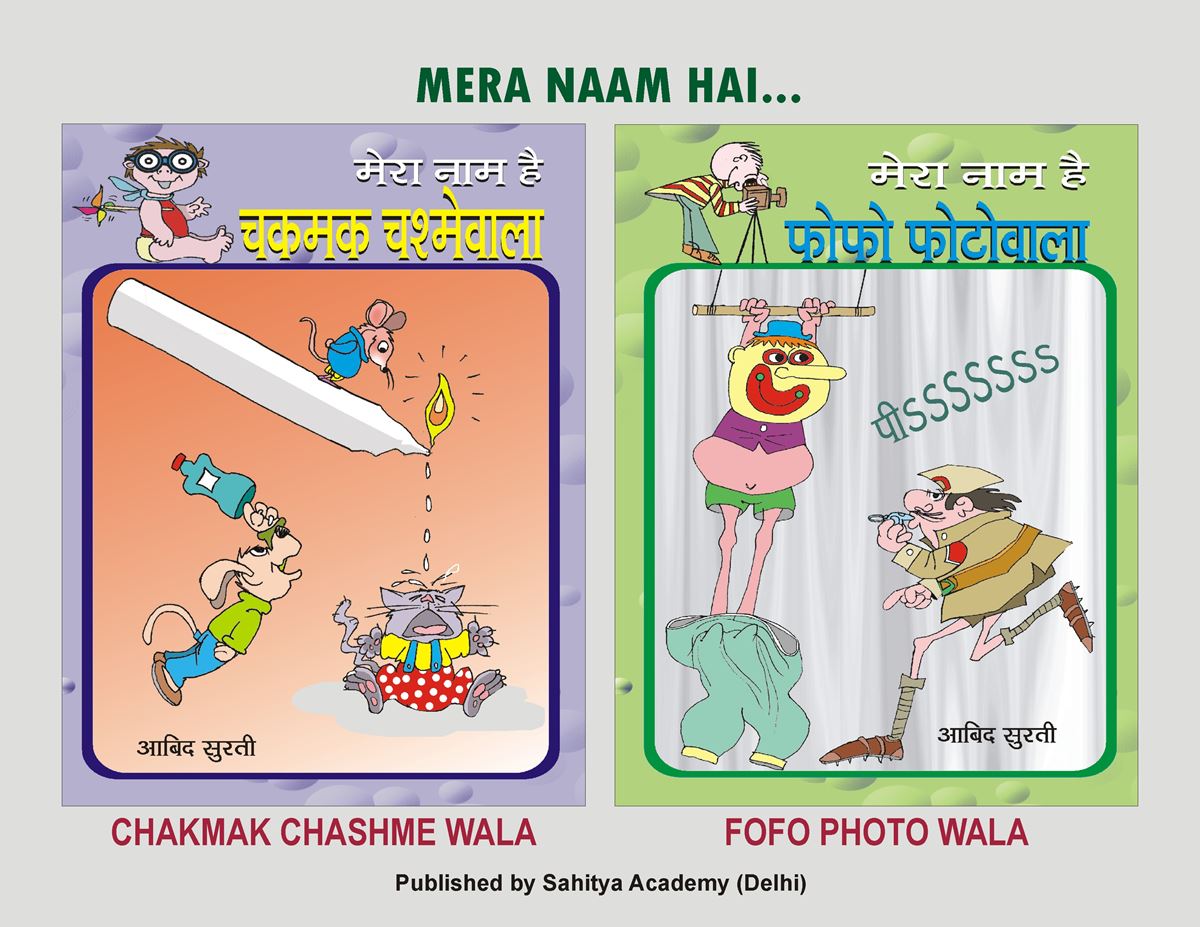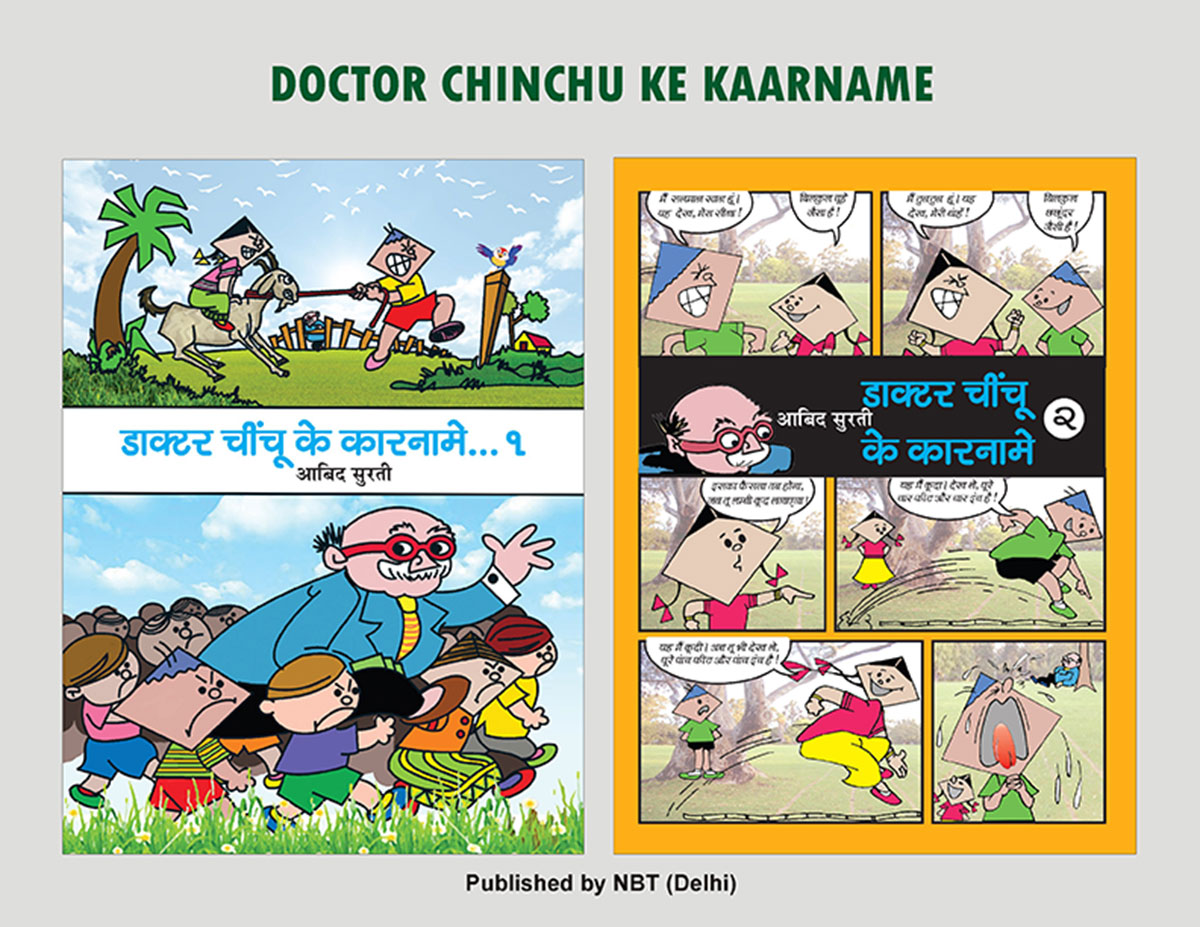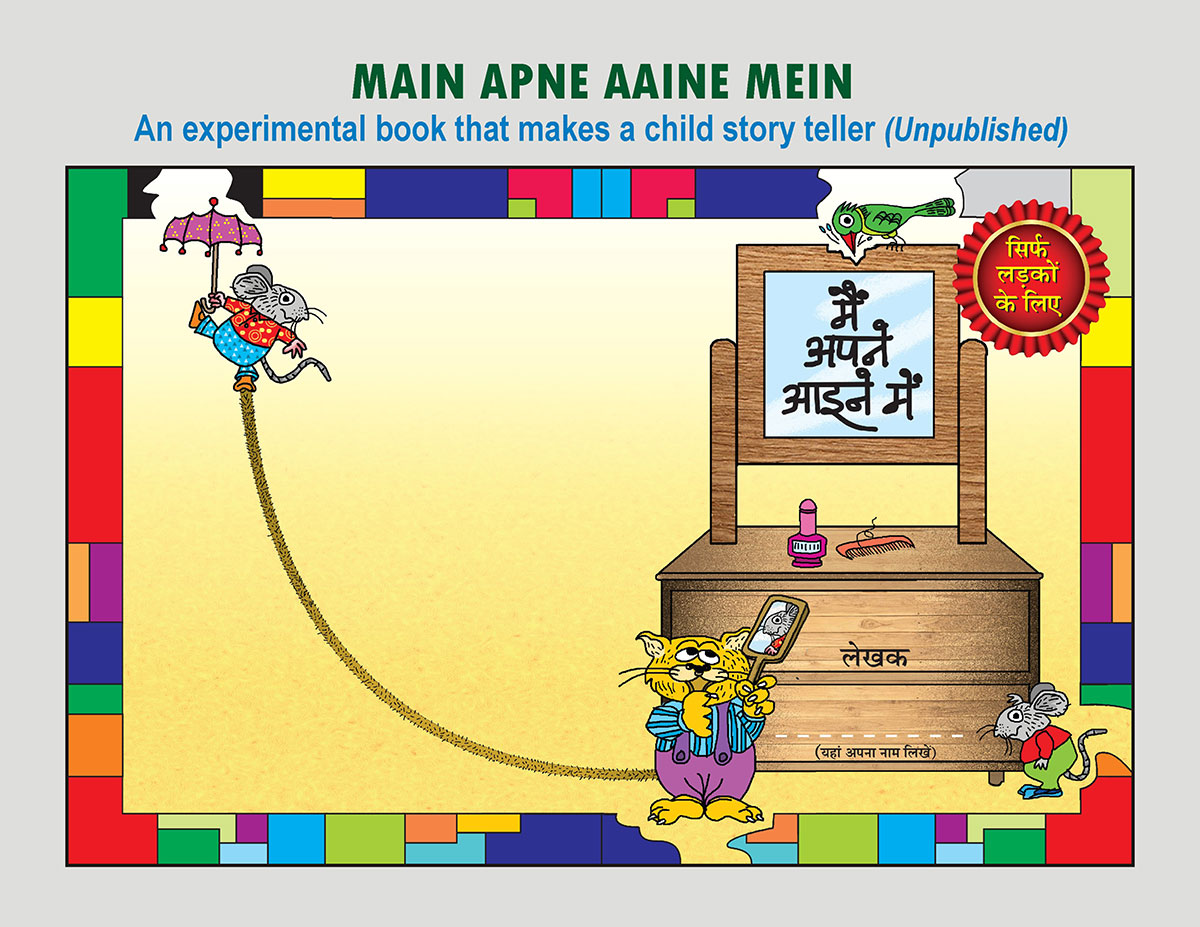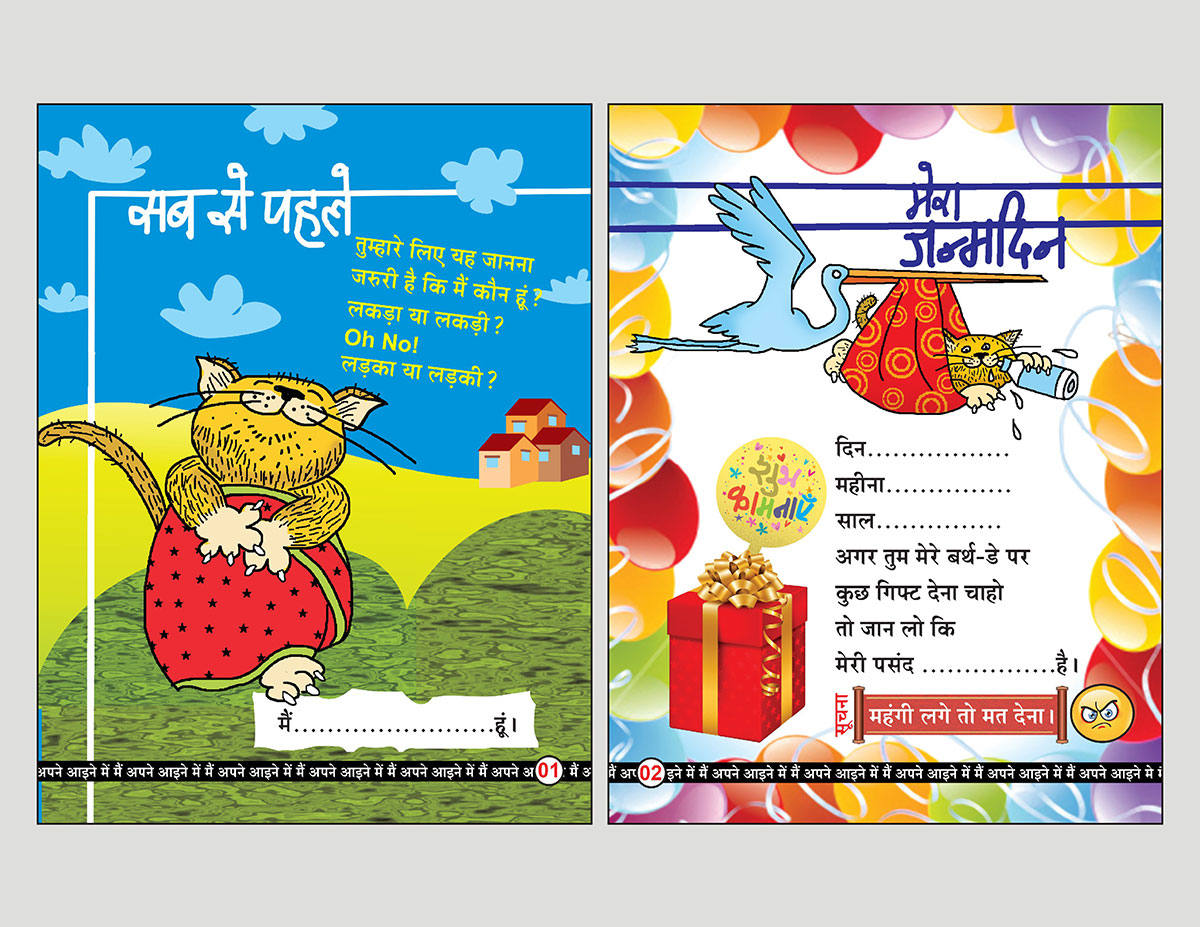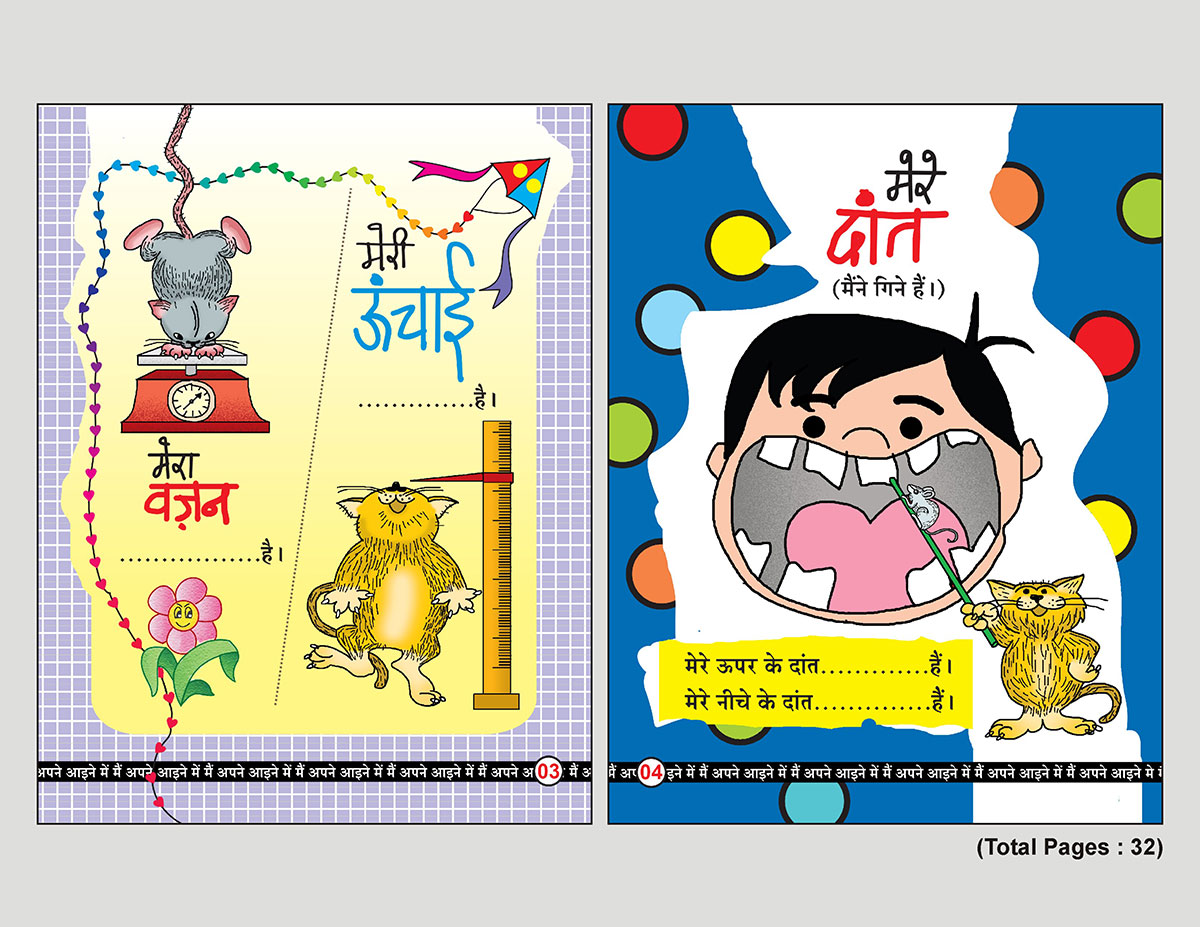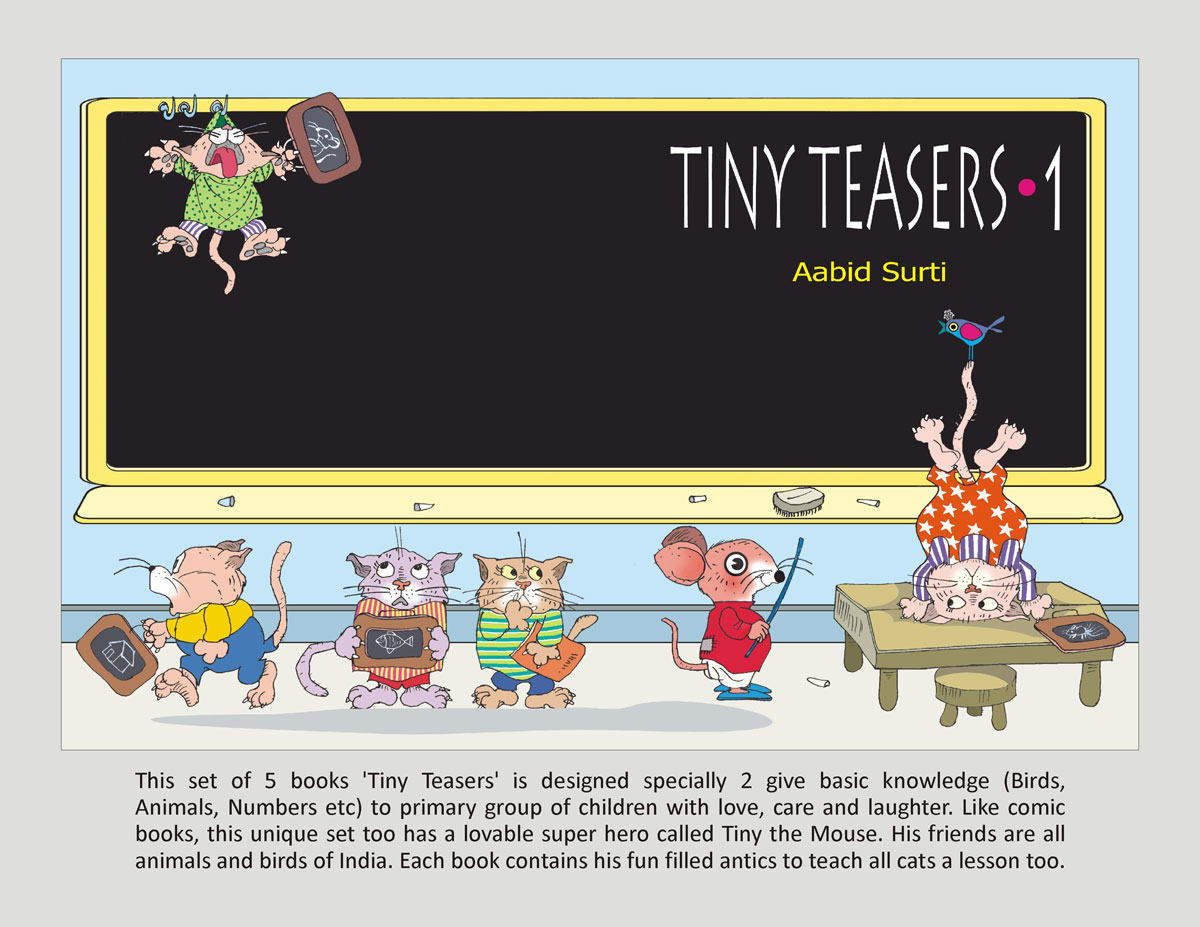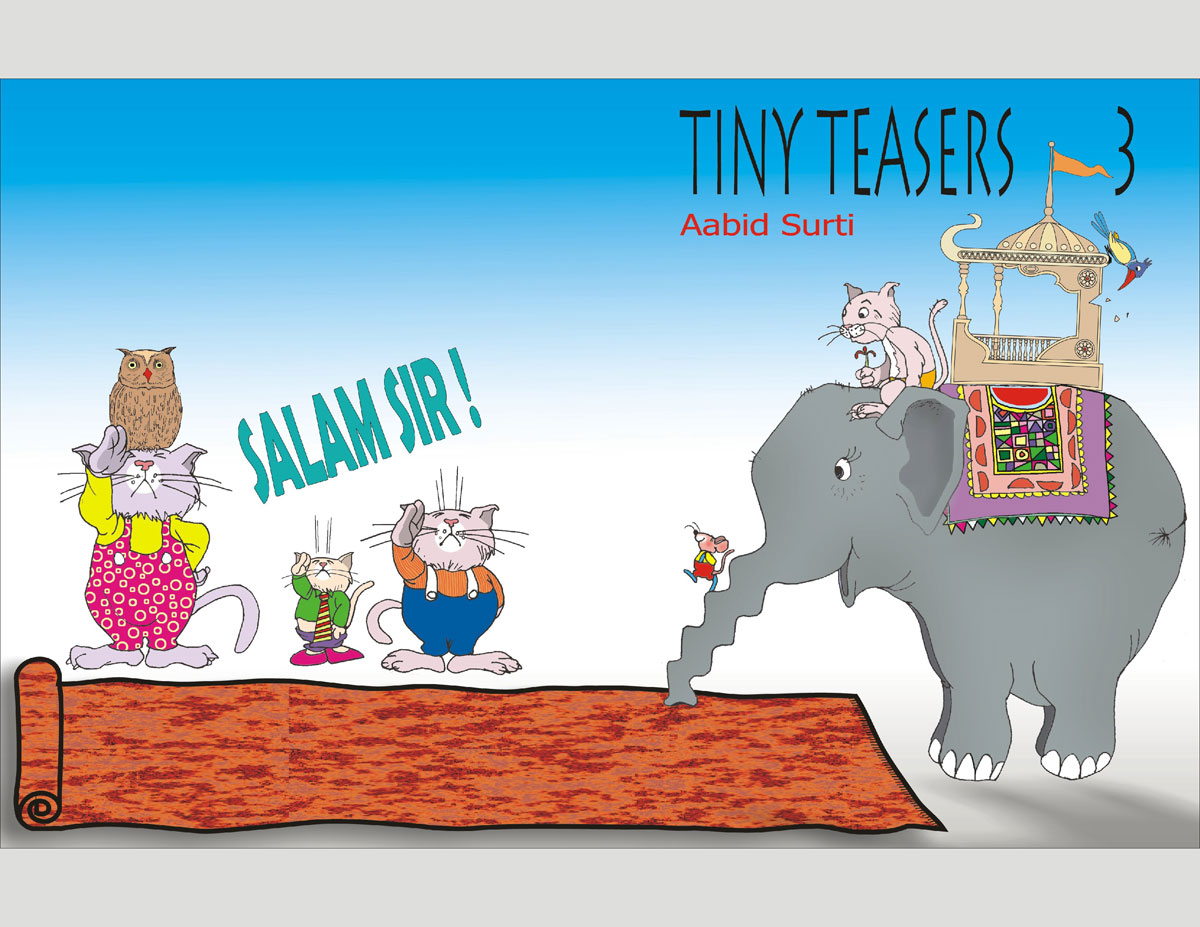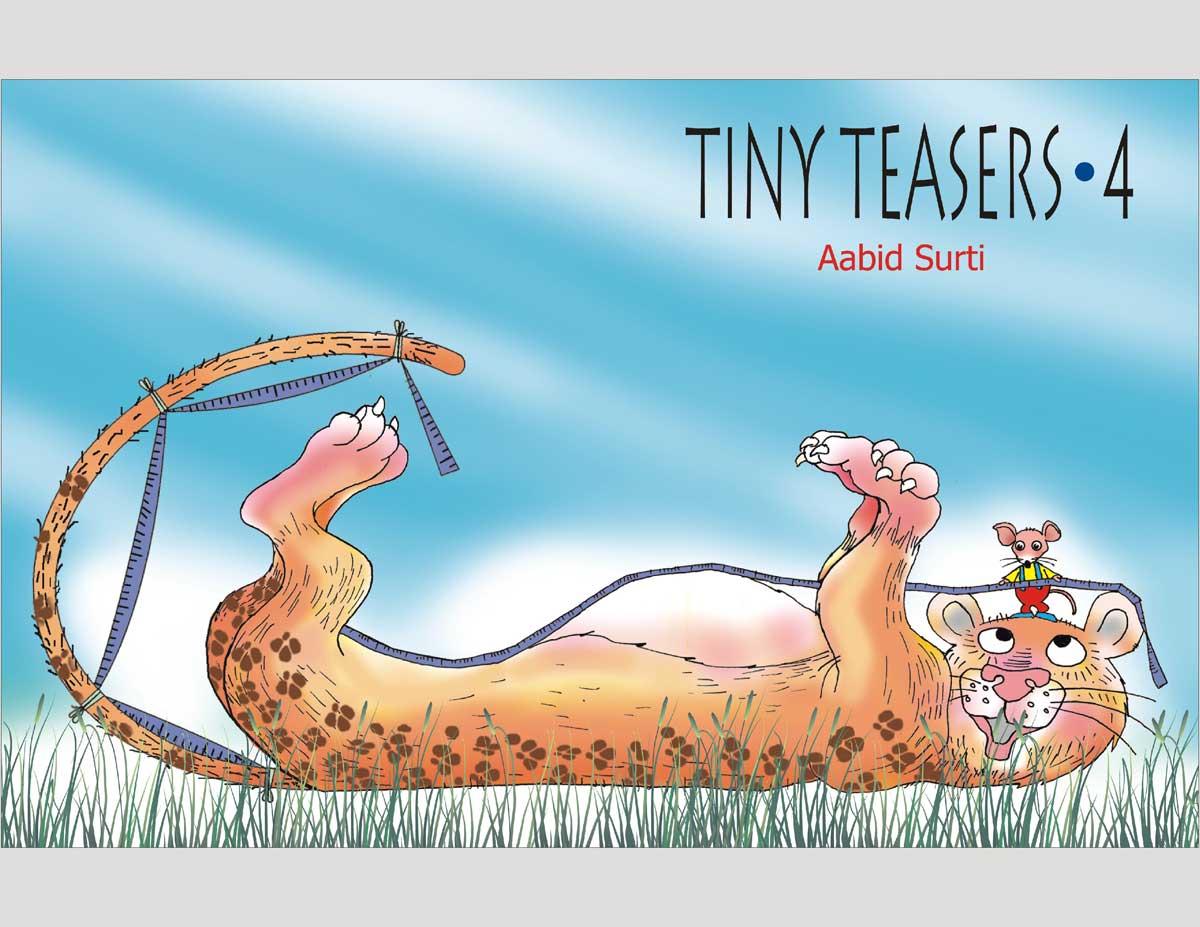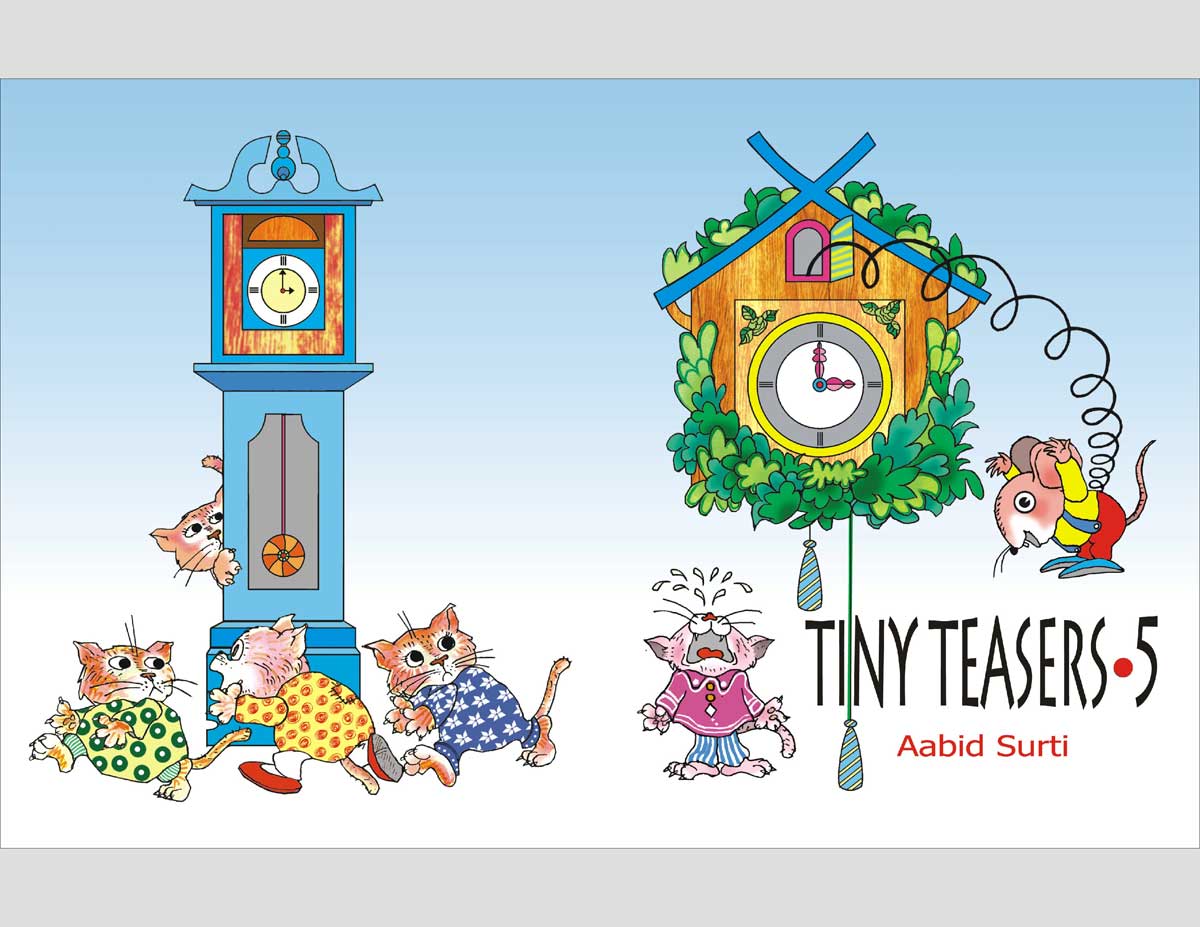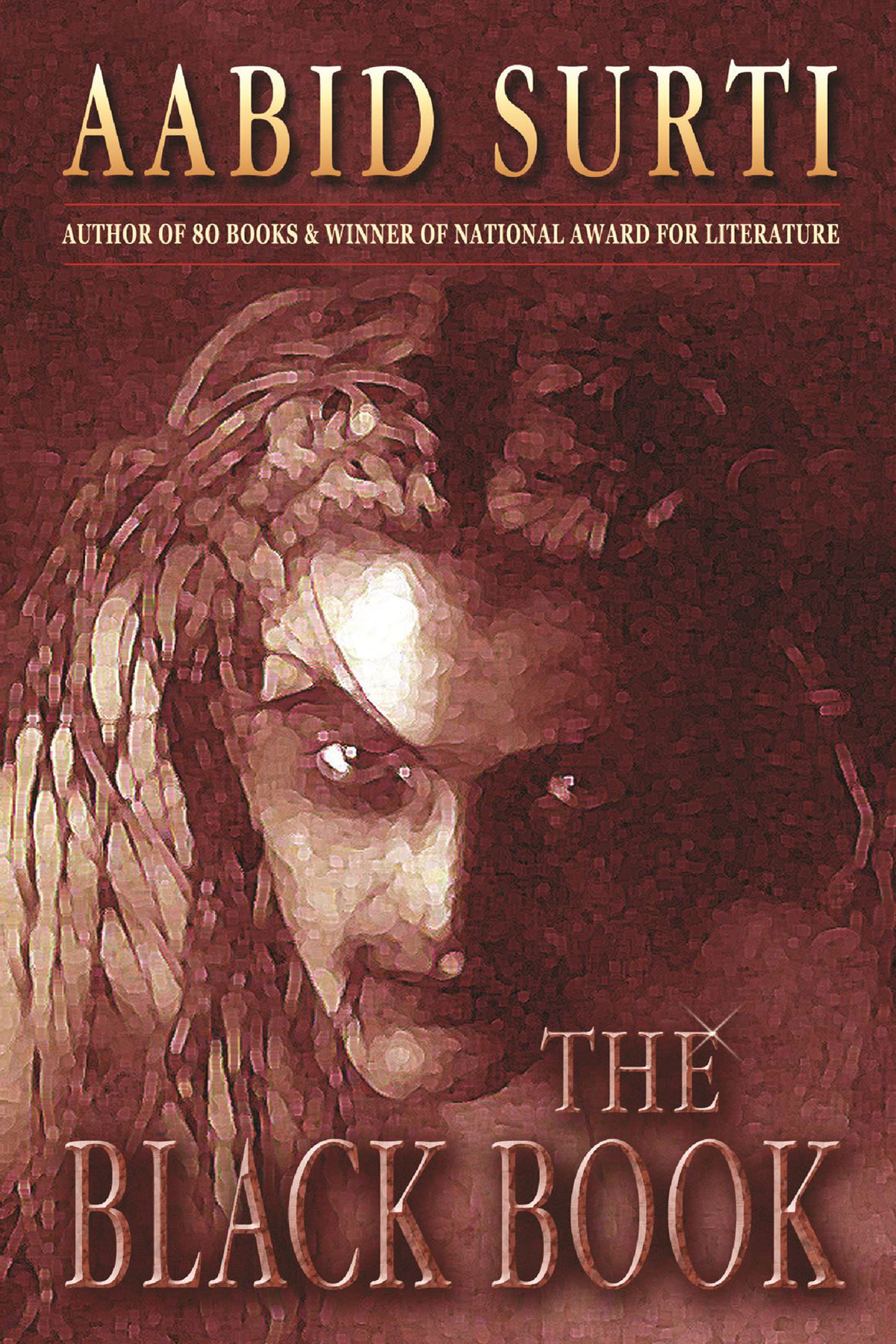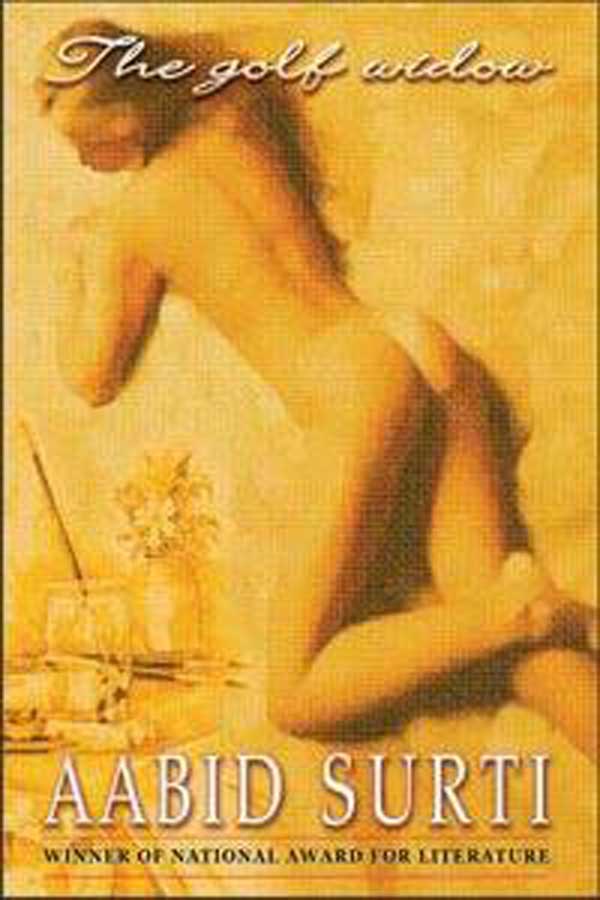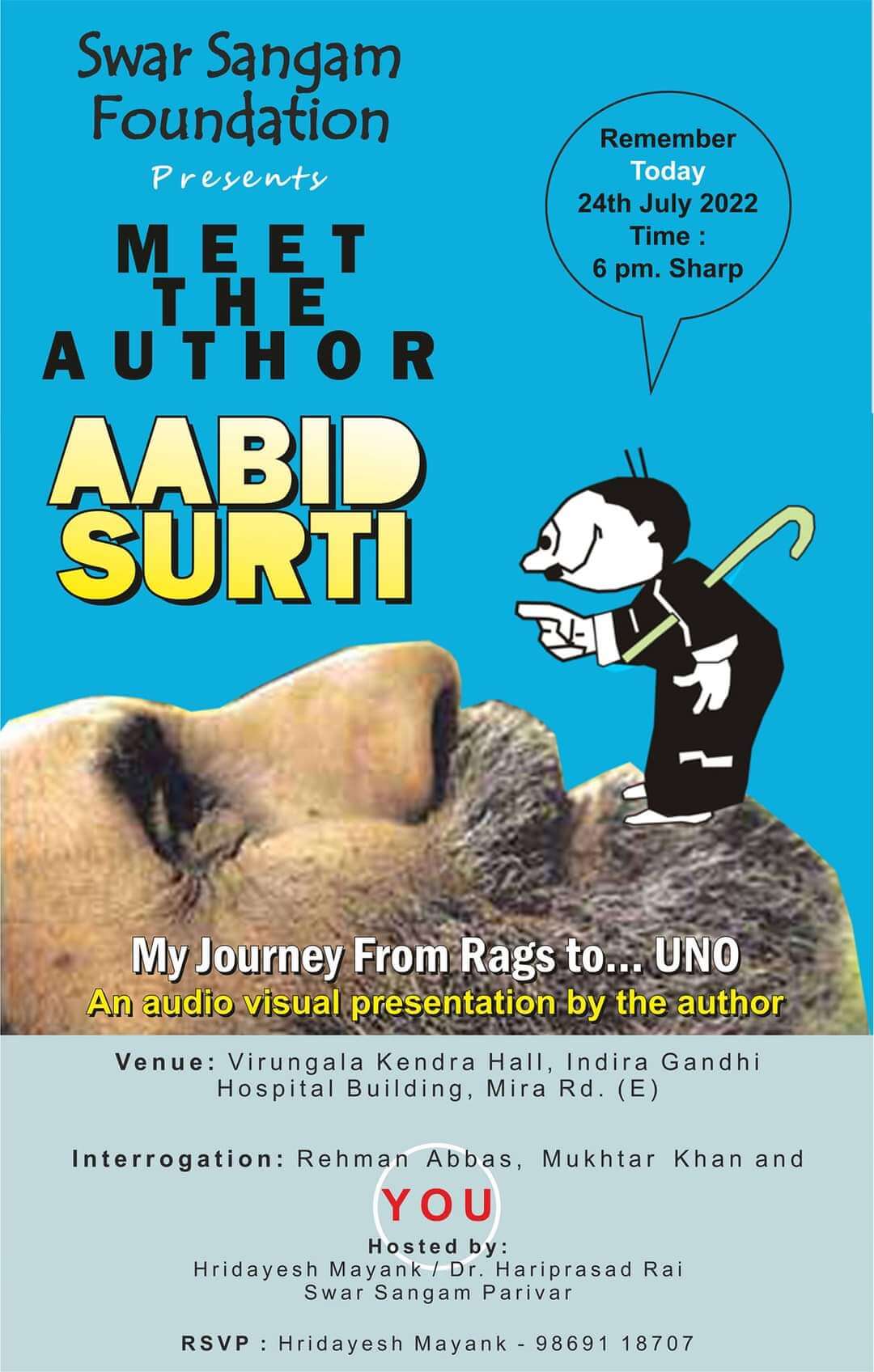IN THE NAME OF RAMA ... Read More
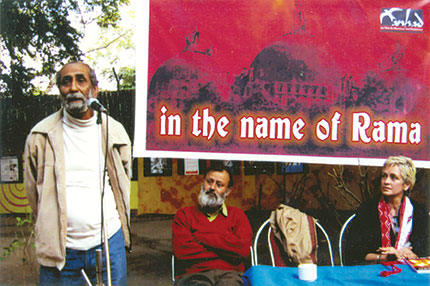
A fictional tale of a true devotee of Rama, a wandering stortteller, who sings the praises of Lord Rama from village to village, the book is a deeply metaphorical love story that explores the half-truths surrounding the Ram Janmbhoomi issue. It is a hard-hitting novel, a story of unusual courage and devotion which climaxes on the day of the destruction of the Babri Masjid.
Asian Age
23td Jan’ 05
THE BLACK BOOK ... Read More
The latest from Hindi’s Salman Rushdie
Aabid Surti’s The Black Book, questions and challenges the hypocrisy of organized religion.
Indian Express, 13th July 04
The Black Book is the Devil’s Gospel. It was first published in Hindi and subsequently appeared in eight Indian languages
- Adjudged the Book of the Year in Kannada
- It was short-listed by Playboy International and the UK-based Langdon Publishing.
- A Janta Dal candidate and the editor of a literary magazine lost a sure seat in the assembly elections in Mumbai because he had published the Urdu translation of The Black Book
THE GOSPAL OF DEVIL
Aabid Surti is a multi-faceted artist equally versatile in every art form he explores. As a writer, painter, cartoonist, innovator of mirror collage technique, journalist, maker of stained glass artifice, writer/director of plays, filmmaker and himself a subject for filmmaking, Aabid has Midas touch to turn simple ideas into an exquisite creative work.
He has penned over 80 books, covering different literary forms – from travelogue to novel, autobiography to Ghazal. His Katha Vaachak (The Story Teller) is fictionalized novel in the back drop of Babri demolition – but his boldest and most controversial book is undoubtedly The Black Book. It is not only revolutionary in form and content but also a fresh look into all major religions. Although this work of fiction is written in the classical style of the epics, the structure is of novel.
The crux of the book is- revolt against blind, cruel, fanatic adherence to religious beliefs and total lack of tolerance for other faiths, resulting in lethal hatred working as a driving force to obliterate those belonging to different communities.
The Black Book looks at the deep-rooted, established religious conventions and squashes them with ferocity. To evolve a new world order, the central character presents seemingly bizarre philosophy about sex, food, marriage and the rights of senior citizens. The message of the book is happiness is here and now, on this earth only. Yet, paradoxically, except for his birth, the son of the devil, Yam-Zalal’s childhood is just like that of Lord Krishna and he dies the death of Christ. So where is the dividing line between good and evil? What is the difference between devil and God? Who is Almighty and who is Satan?
Each reader will find a different answer from this classic, illustrated with Tantric-style line drawings.
The birth of this book is unique in many ways. It was originally written in Gujarati (1971). A number of local publishers were awed by the subject matter but did not dare to publish it. Then, a respected name in Indian literature, Kamaleshwar, the then-editor of Sarika (A Times Of India, Hindi publication), was highly impressed and offered to publish its translation.
The first publication (1975) titled Kali-Kitab was followed by a flurry of threatening letters and abusive phone calls. Not only that Kamleshwar and the author received death threats from both Hindus as well as Muslims!
Intrigued by the book and the controversy, The Playboy International offered to publish it in English. But before it could go to the press, cult riots crupted in the US. Keeping the public sentiment in mind, the project had to be shelved.
In a slightly better climate came the offer to publish it in UK by Langdon Publishing, who liked the manuscript ‘enormously’, but before they could complete the contractual formalities, Salman Rushdie’s Satanic Verses appeared in the market. The UK publisher wrote back: ‘As you can imagine, given the backlash from Satanic Verses, it is not advisable to publish The Black Book at this stage.’
In 1990 an Urdu scholar, turned politician, from Bombay- Sajid Rashid liked the book so much that he approached the author with a request to publish it in Urdu. In the assembly elections in the same year, when he stood on a Janata Dal ticket from a predominantly Muslim locality of Kurla (A suburb of Mumbai), he was branded by his rivals as a Devil-Worshipper. The book cost him an assembly seat.
Something more about the book: Surprisingly the basic difference between Satanic Verses and The Black Book which was written nearly two decades back before Verses, is that the former targets only one religion- Islam, while the other, in Aabid’s own words, is “…To question blind followers of all religions; to provoke doubt which is the foundation of true religion.”
The Black Book has so far been published in 8 languages and won the Book of the Year award in Kannada. In Hindi the scholar, late Dr. Dharamvir Bharati wrote: “Shiva’s Tandav is always callous. It destroys the old beliefs so that a new order can be established. The same callousness is also found in this satirical fiction with the same motive. The writer has given voice to the complete truth of the day.”
Kamaleshwar declared: “In this book, which is darker than night and brighter than light, a man can clearly see both sides of his soul, positive as well as negative. There is no element missing in The Black Book which cannot be found in society today.”
About the process of writing this book, Aabid says: “Some books are written, some are inspired. Believe it or not, this one is not written by me, it was written through me by God or by the devil, I don’t know.”
A woman gets impregnated by a wolf and Yam-Zalal, the son of the Devil, is born. As he matures, he starts to spread the naked truth about life and death…but this is no messenger of God. He has taken birth to preach the Devil’s gospel.
And then, what follows is similar to the life of any Messiah… Yam-Zalal is betrayed by his followers and tried by the ruler, convicted and crucified. You think he was really killed? Of course not. The end of the book reads –Where Yam-Zalal had been nailed, there was now nobody but the black phallic symbol of Satan.
After reading and writing about The Black Book, following questions have come up that I had to ask Aabid.
Jyoti – Almost three decades back you had written this book, since then so much have happened in India and the world. Do you think that, now the preaching of Satan has become absolute?
Aabid – Certainly not. On the contrary it has become more relevant. A look around the world shows that Satan’s teachings are more widely practiced than God’s words.
Jyoti – The basic preaching to destroy the authority of religion is welcome, but can the personal freedom be achieved by indulging in unbridled sex?
Aabid – Personal freedom has nothing to do with free sex. However, the suppression and perversion of sexuality has undoubtedly harmed the society. Freedom in every sphere is our birth right, not just in sex.
- This article was written by Jyoti Vyas.
Jyoti Vyas is freelance columnist writing for The Asian Age and PT Notes (Prithvi Theatre’s Magazine), Gujarati News Papers and magazines, translated plays in Hindi and Gujarati, is actively involved in art and culture world of Mumbai. (2003)

